






Nestled by the coast of Lusail sits the splendor of Raf es and Fairmont Doha, where luxury is rooted in even the smallest details. Open the doors to mesmerizing hospitality and make memories in a world of sophistication.











Nestled by the coast of Lusail sits the splendor of Raf es and Fairmont Doha, where luxury is rooted in even the smallest details. Open the doors to mesmerizing hospitality and make memories in a world of sophistication.



Step into a world of opulence when you book a Suite at Raffles Doha.
Experience the added luxury of QAR 750 credit to spend on dining in the hotel, and QAR 500 towards any Spa treatment.
Children aged 12 and below are welcome to indulge in the enchantment of complimentary dining.
Rates starting from QAR 3,500 per night
For reservations, please call +974 4030 7100 or email reservations.doha@raffles.com


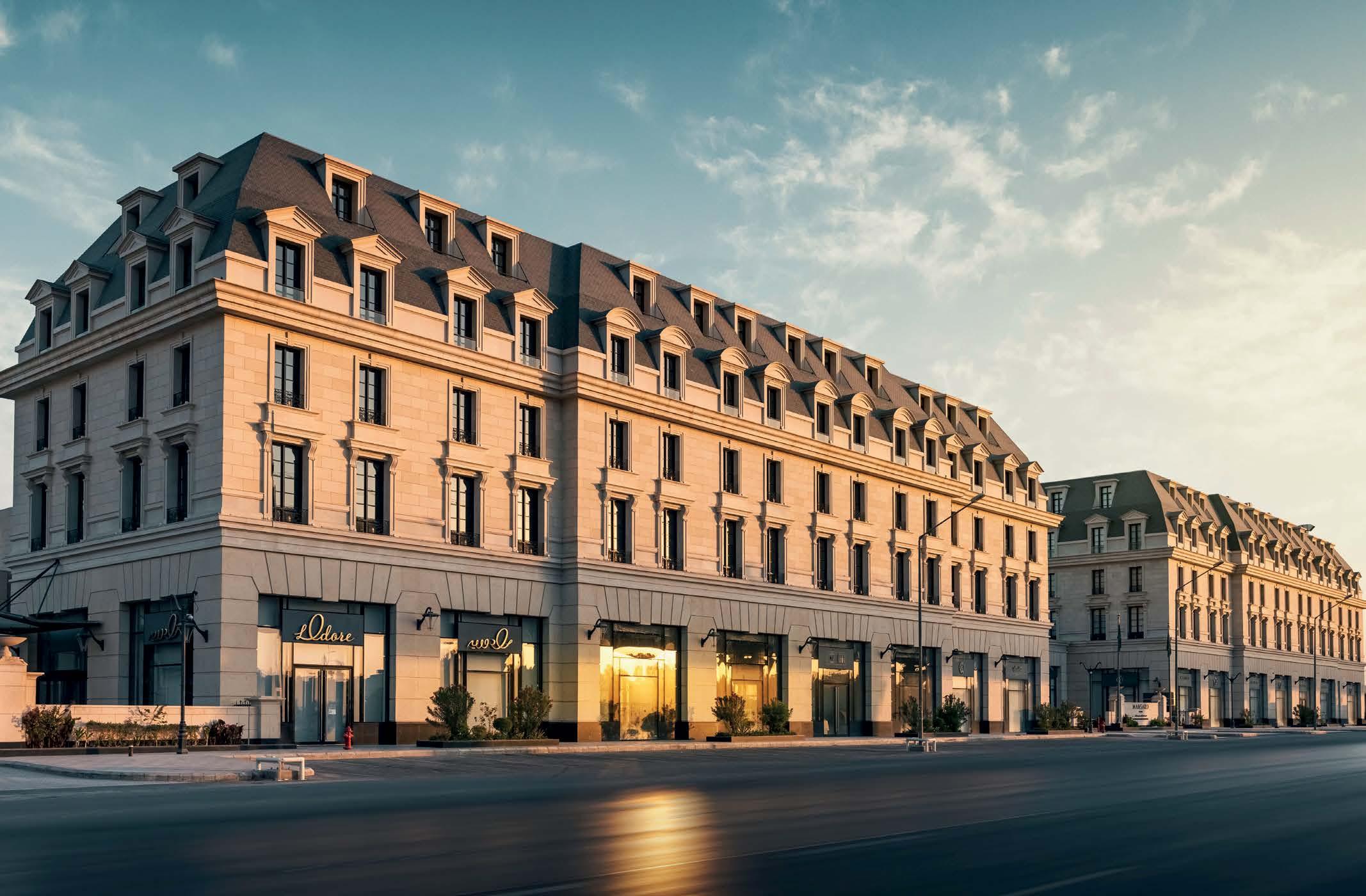




P.15 From Beauty to Business
The rise of a self-made beauty entrepreneur ASHLEY AQUILINA.
P.30 Breaking Boundaries
DEEPL’S brand new Arabic document translation tool.
P.34 Leading Transformation
Publicis Sapient CEO NIGEL VAZ on transforming the consulting industry.
P.38 Create Apps Championship
Dubai Chamber of Digital Economy’s CREATE APPS Championship celebrates its 2025 winners.
↑ Ashley Aquilina is the founder of Ashley Aquilina Academy.
P.44 REAL ESTATE
Luxury living reimagined by THE CHEDI PRIVATE RESIDENCES.
P.58 IN THE LOOP
UAE Minister of Climate
Change and Environment, H.E. DR. AMNA BINT ABDULLAH AL DAHAK.
P.60 The Final Pitch
Dubai
Entrepreneurs can apply by May 27, 2025.
CEO Wissam Younane wissam@bncpublishing.net
MANAGING DIRECTOR Rabih Najm rabih@bncpublishing.net
ART DIRECTOR Simona El Khoury
EDITOR IN CHIEF Anil Bhoyrul anil@bncpublishing.net
MANAGING EDITOR Tamara Pupic tamara@bncpublishing.net
FEATURES EDITOR Aalia Mehreen Ahmed aalia@bncpublishing.net
REGIONAL DIRECTOR Mahdi Hashemi mahdi@bncpublishing.net
DIRECTOR OF INNOVATION Sarah Saddouk sarah@bncpublishing.net
GROUP SALES DIRECTOR – B2B GROUP Joaquim D’Costa jo@bncpublishing.net
HEAD OF PARTNERSHIPS Samir Glor Samir@bncpublishing.net
COMMERCIAL LEAD Anna Chipala anna@bncpublishing.net
COLUMNIST Tamara Clarke
CONTRIBUTING WRITERS Fida Chaaban
SUBSCRIBE
Contact subscriptions@bncpublishing.net to receive Entrepreneur Middle East every issue
COMMERCIAL ENQUIRIES sales@bncpublishing.net
Access fresh content daily on our website

Enlighten Your Eternal Beauty, Inside and Out!
@muarjewels www.muarjewels.com
info@muarjewels.com

If there was a global race to find the city with the fastest set up time for a new business, Dubai would be doing pretty well.
Last week Meydan Free Zone officially launched Fawri, a new service that enables entrepreneurs to obtain a complete business licence in just 60 minutes.
Meydan Free Zone says the platform redefines the speed and simplicity of company formation in Dubai, empowering founders to launch their businesses with unprecedented efficiency.
Fawri is a fully digital, all-in-one licensing solution designed specifically for solo entrepreneurs. With a seamless application process, eligible individuals can receive all core legal documents in an hour.
Available for more than 1,800 approved business activities across diverse sectors such as e-commerce, consulting, trading, education, and fintech, Fawri provides unmatched flexibility.
Entrepreneurs can combine up to three activity groups under one licence, with the freedom to operate across different industries.
Impressive, isn’t it? Having been through this journey myself a couple of times, entrepreneurs have a decent choice from TECOM to the very fast-growing services in Ras Al Khaimah (RAK) – and of course more traditional land based services.
Personally, I think that RAK will in the next fives years lead the way when it comes to setting up a new business in the UAE. My hunch is the leadership team there, and the seamless process – and most of all, the range of different sectors that are covered – will give it the advantage.
But likewise, getting the license is just the beginning. The reason cities like London, Beijing, Paris, Berlin and Istanbul generally top the list when it comes to best places to start a business, is the whole ecosystem: the banking process, leasing equipment, access to startup support, capital expenditure options – it is a very long list that only gets longer each year.
I pick one out from the above – banking. This has, as any entrepreneur will tell you, always been a “headache.” Set up procedures for most banks are still very traditional, paper heavy and time consuming. Most banks take six weeks to set up a new account, causing many new businesses huge headaches when it comes to making basic payments. On this, hats off to Wio bank which is changing the game in a good way.
It is clear the UAE government, through so many different and impressive free zones, is making this country, especially Dubai, one of the best cities in the world to start a new business. But if the other associated industries in the ecosystem could do the same, it would really propel Dubai to the top.
Anil Bhoyrul Editor-in-Chief
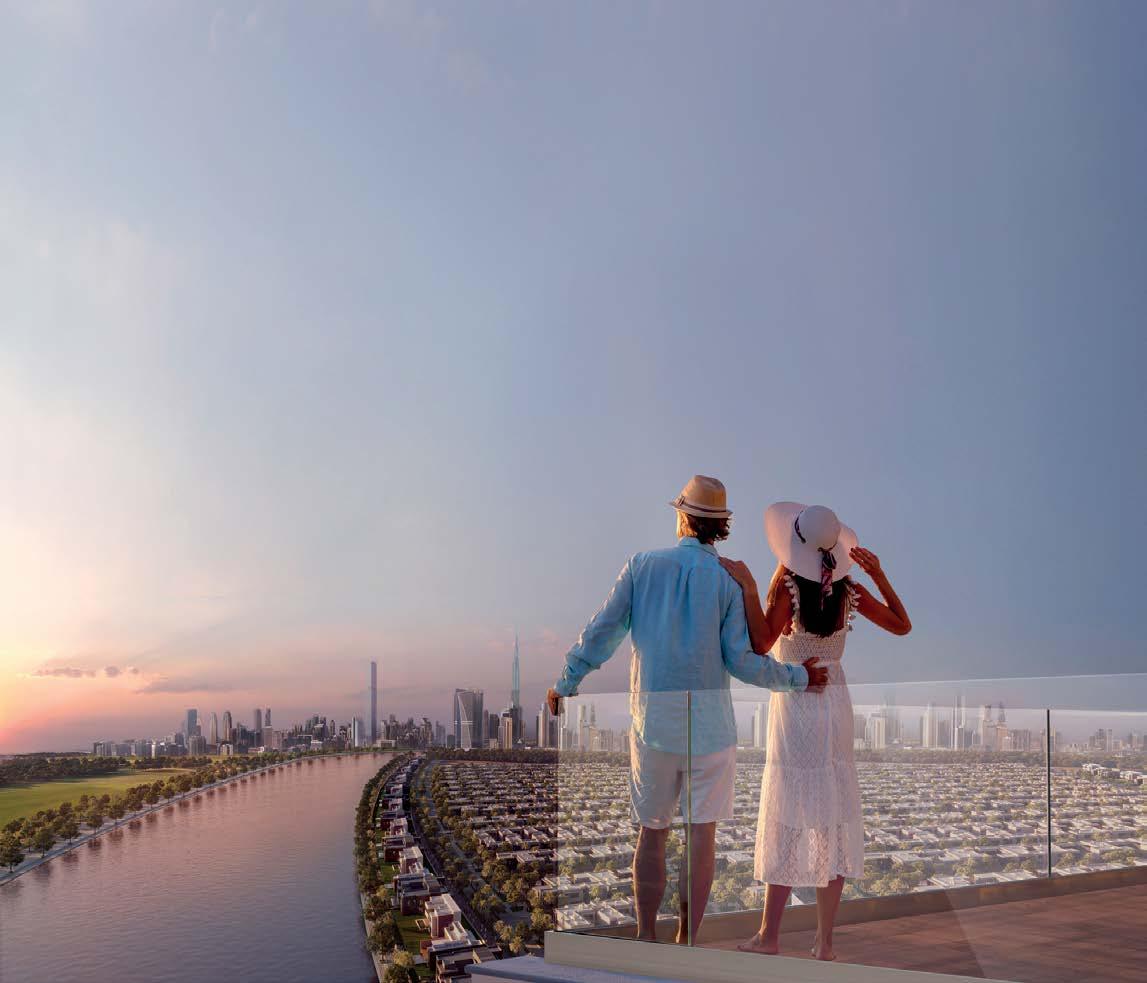


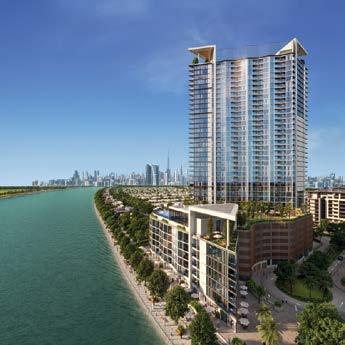

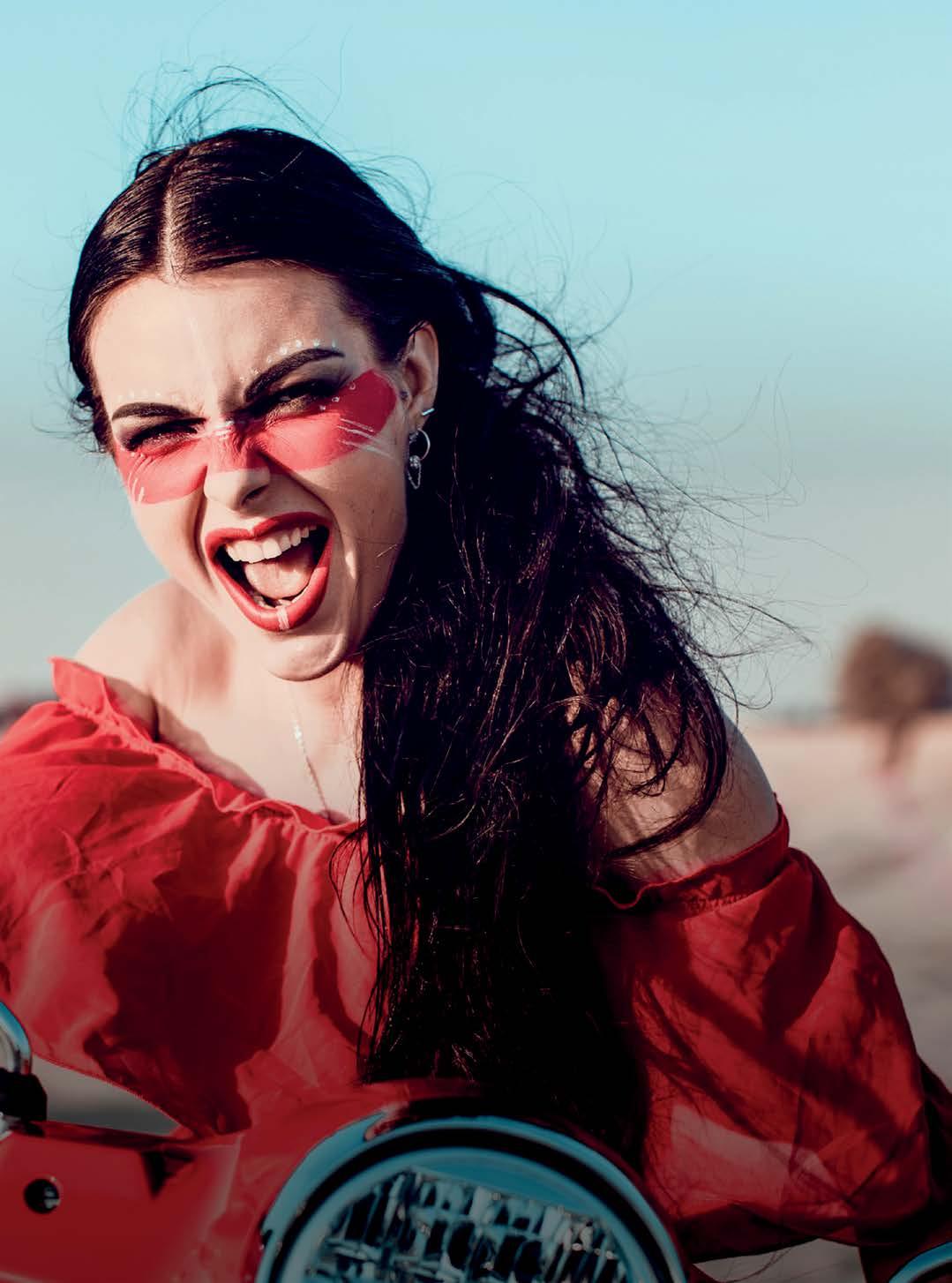

Ashley Aquilina, founder of Ashley Aquilina Academy, on how an unshakeable belief in her craft became the foundation of a remarkable business journey. by TAMARA
In a world saturated with trends and influencers, few stories stand out like that of Ashley Aquilina, a British beautician who turned her passion into a thriving beauty business.
From a £4 -an-hour job at a spa in her hometown of Manchester, to launching a mobile beauty business in her local area, Aquilina’s career trajectory changed when her mother helped her find a lucrative niche. “When I was 23, I had my brows tattooed for the first time, and my mum advised I should learn how to do this. Semi-permanent makeup (SPMU) wasn’t big at the time, but I followed my instinct—and it’s been the best decision I’ve made,” she says.
Before long, her mobile beauty business evolved into a specialist business focused on semi-permanent makeup, servicing clients in Manchester and Dubai. “Four years ago, I expanded by launching my own academy and online SPMU product shop.”
Looking back at the early days, Aquilina says that the biggest challenge was financial. “Working in salons paid poorly, and being self-employed was risky, especially without consistent client flow,” she explains. “There was also the pressure of educating clients about treatments that weren’t yet mainstream, like SPMU back then. But I believed in the quality of my work and stayed persistent.”
Today, Aquilina specializes in beauty treatments for eyebrows (microblading, ombre brows, and combination brows) and lips (lip blush). “Currently, I have a small but dedicated team that helps manage the academy, product orders, and client bookings. I work
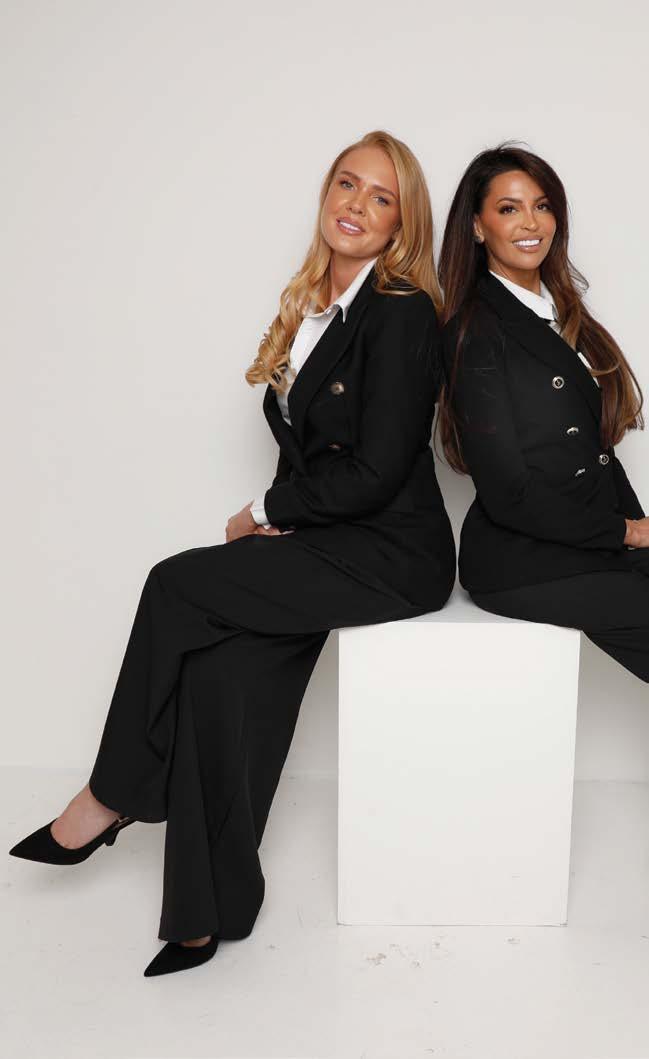

SUCCESS ISN’T INSTANT, AND THAT’S OKAY. IT TAKES YEARS OF REFINING YOUR CRAFT, BUILDING A CLIENT BASE, AND LEARNING FROM YOUR MISTAKES. I WISH I KNEW EARLIER TO TRUST THE PROCESS AND BE PATIENT WITH MY OWN GROWTH.”
closely with my staff to ensure the business still feels personal and high quality—something I’ve always valued,” she explains.
Ashley Aquilina Academy was borne out of her desire to help aspiring beauty professionals build a lucrative career. In a blog post on her website, Aquilina lays out the full cost breakdown with complete transparency- investing between £1,200 and £4,000 in microblading training can lead to a monthly income of £5,000 to £32,500. “After years of perfecting my craft, I realized there were so many aspiring artists who lacked guidance and proper education,” she explains. “I created my academy to empower others—to teach them not just the technique, but the business side of beauty too. My courses are designed for beginners as well as professionals looking to upskill.”
On her main learnings from this part of her business, Aquilina says, “I’ve learned that teaching is an art in itself. People learn differently, and it’s so important to provide not just information, but mentorship and confidence-building. It’s also taught me how fulfilling it is to watch others succeed from something I helped them achieve.”
Her curiosity and ambition eventually brought her to Dubai, a place she had long
considered “full of opportunity, especially in beauty.” She explains, “I noticed that SPMU was in demand here, and the entrepreneurial culture really aligned with my mindset. I knew I had something valuable to offer, and I wanted to grow beyond the UK.” However, entering the the Dubai beauty market was no easy feat. “The biggest challenge was adapting to a new market with different regulations, consumer behaviors, and even cultural expectations,” Aquilina explains. “It took time to understand the licensing and legal requirements to operate professionally. I overcame these challenges by researching thoroughly, networking with other professionals in the region, and staying adaptable.”
When it comes to style and consumer expectations, the markets of the UK and the UAE have its differences, Aquilina says. “The UAE market is more trend-driven and fast-paced. Clients expect a very high level of service and are willing to invest in luxury treatments. In the UK, clients are sometimes more reserved in their approach, and trends can take a bit longer to catch on. However, both markets value quality, trust, and professionalism—which I always aim to deliver.”
Her future plans include expanding her training courses further internationally, introducing more advanced
education options, and growing her online store. “I’m also exploring brand collaborations and product development, especially in the SPMU space.” Aquilina is equally passionate about both artistry and entrepreneurship which might be the secret to her success. “I’m passionate about the creative side—brows, lips, pigments—but I also love the business side. I schedule time for both. I treat my artistry like a craft I constantly refine, while also focusing on growing the academy, brand, and online store,” she concludes.
}"Do what you love. Stay consistent and don’t be afraid to evolve. Take risks, but make sure they’re informed ones. Build a brand that represents your values and always put the client experience first. And most importantly—invest in your education. Knowledge and skills are what set you apart."
}"Success isn’t instant, and that’s okay. It takes years of refining your craft, building a client base, and learning from your mistakes. I wish I knew earlier to trust the process and be patient with my own growth."
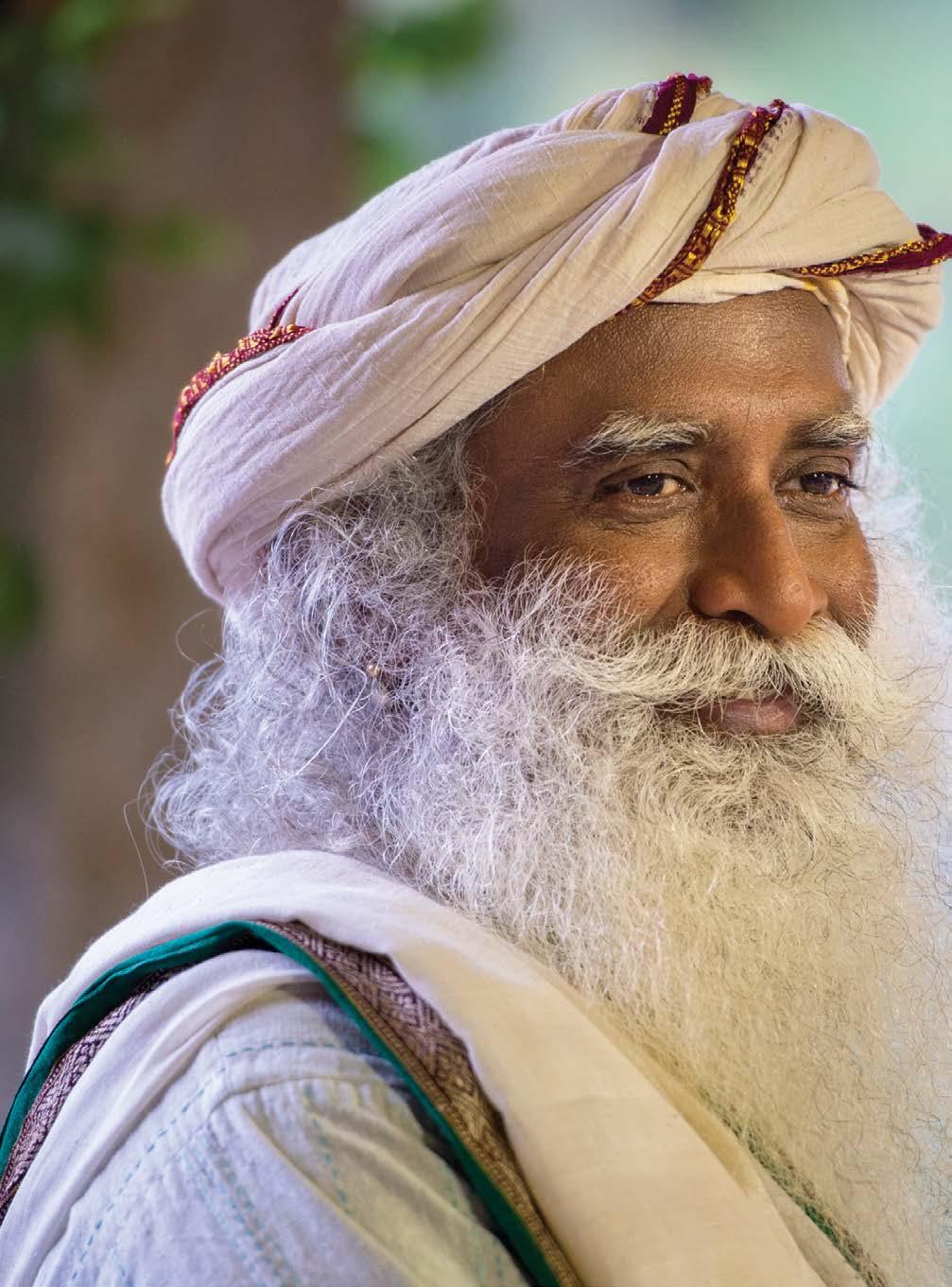

Sadhguru on his dedication to creating lasting solutions that will benefit generations yet unborn.
by TAMARA PUPIC
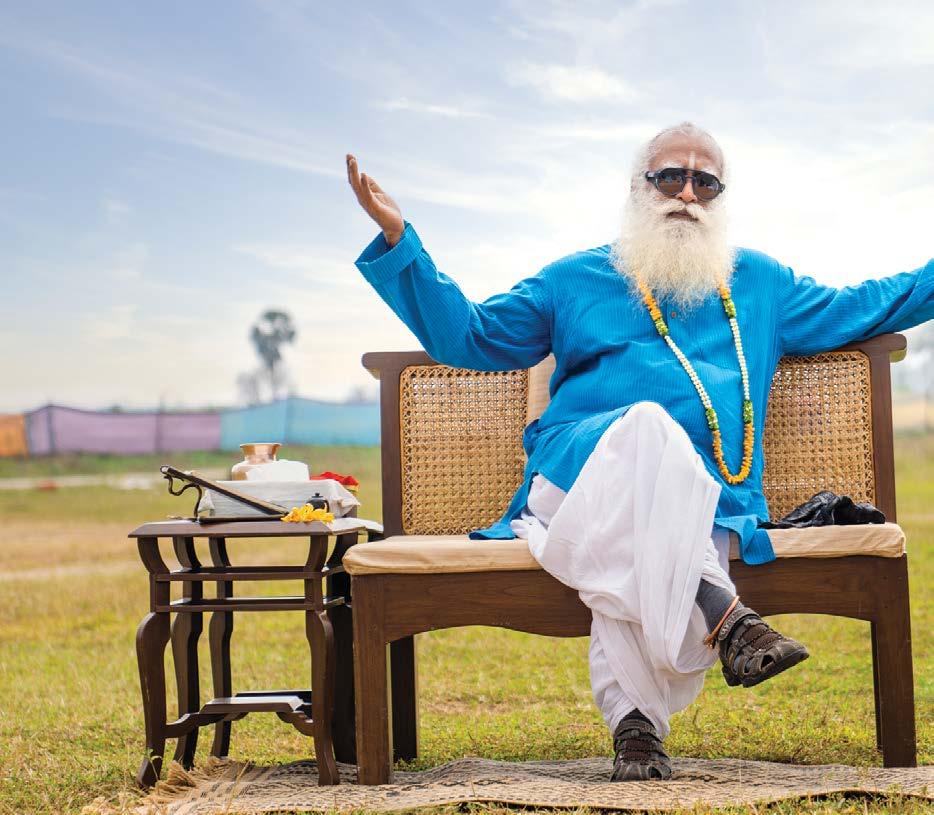
Sadhguru, an Indian guru and founder of the India-based non-profit spiritual organization Isha Foundation, remains undeterred even as much of the world often ignores his urgent warningswhether concerning our planet’s alarming soil degradation or humanity's impending mental health crisis. "Nobody wants to take up something which may take 15 to 20 years to produce real results,” he says. "If you increase the GDP, everybody notices it tomorrow morning. But if you increase the soil organic content, plants are happier, animal creatures are happier, you yourself are healthier and better, but you don't notice it.”
Blending ancient mysticism with modern pragmatism, Sadhguru is guided by a vision that stretches far beyond election cycles or even his own lifetime. His global projects exemplify this dedication, particularly the Miracle of Mind app that offers a seven-minute guided meditation in multiple languages, along with an AI-powered feature that distills his teachings. "The problem right now is that, when something happens, people react in a certain way, but if they gave themselves more reaction time, more thinking before they react to something, a whole lot of things, including suicide and murder, would be down,” Sadhguru explains. "Our effort through the Miracle of Mind app is to touch at least 3 billion people in the next 24 months. If 3 billion people close their eyes for seven minutes a day, we will definitely be making a real difference in the world. This is a generational responsibility.”

→↑ Sadhguru leads the Conscious Planet Movement to Save Soil campaign that aims to activate the support of over 4.1 billion people and urge governments to legislate policies that mandate a minimum of 3%-6% organic content in all agricultural soil in their countries.
Highlighting the urgency, Sadhguru references multiple research studies predicting severe mental health issues, such as that 30-33% of the world's population would be mentally ill by 2050, or that one in three teenage girls in the US are clinically depressed, or that 42% of Europeans over 40 years of age are on some kind of psychiatric medication, or that about 17,600 children below 18 years of age committed suicide in India in 2023 alone. “Also, I was in conversation with the Surgeon General of United States, and he says that one in two Americans is feeling lonely. Loneliness is the incubation period for mental illness. When you start feeling lonely, you're working on it. After some time, you'll graduate into a worse situation,” he says. He adds, "Many
responsible scientists say that in another 15 to 20 years' time, probably there will not be a single family without at least one person who is mentally ill. That’s not a good prospect because after thousands of years of human struggles, we have come to a place where our survival is better organized than ever before, but we are mentally cracking up."
The Miracle of Mind app’s successful launch, surpassing a million downloads within just 15 hours—quicker than even ChatGPT’s initial milestone—demonstrates public eagerness for accessible solutions. Sadhguru emphasizes the key to addressing this crisis lies in understanding that "human experience originates internally.” He adds, “Pain and pleasure arise from within us. Joy and misery originate from within us.
Agony and ecstasy emerge from within us. In other words, the source of human experience lies within, not in external surroundings. External factors may stimulate us, but the root, the very seat of human experience, is internal. Given that the source of our experience is within, taking charge of it becomes one of our most critical responsibilities—especially at a time when we face a growing threat of widespread mental illness, which could lead to immense individual and societal suffering.”
Other projects developed from a place of his genuine belief call for an urgent environmental action to address challenges of soil, water and climate change, such as land degradation, water scarcity, agricultural distress, and biodiversity loss. "Soil degradation is very


directly connected to mental health, because our health, physical and mental, depends on the strength of the soil,” Sadhguru explains. "The food that we eat and the bodies that we carry are all soil. When soil degradation happens, the first thing that happens is that our software starts cracking up. Soil degradation and mental and physical health and not separate issues. It's all about life.”
Through the Conscious Planet Movement’s Save Soil campaign, Sadhguru seeks global mobilization— activating over 4.1 billion people to urge governments to legislate mandatory organic content (a minimum of 3%-6%) in agricultural soils. Although progress varies, Sadhguru remains
resolute. "One thing is that the Save Soil movement has definitely changed the narrative on the planet, but is narrative everything? No,” he says. "A few countries which are very progressive have taken on the soil policy very strongly. Others have made half-hearted changes. Some are committed to making changes. This is the way human beings act. A war comes, an election comes, something else happens, they put these kinds of things on the back burner.”
One thing is certain- Sadhguru will not give up. He keeps these topics in focus through his regular appearances at the UN and its various entities, the World Economic Forum, or speaking to the world’s business community,
including the likes of Microsoft, Google, or TED. His massive social media following is not to be underestimated either- 13 million on Instagram, 12.4 million on YouTube, or 10 million on Facebook. "We've crossed the danger mark,” Sadhguru reiterates. “We’ve crossed the red line in many ways, yet we still behave as though everything is fine. Recent studies show that 78% of the world’s soil has lost approximately 30% of its moisture, meaning we’ve destroyed trillions of microorganisms and millions of species. Many people focus solely on saving iconic animals like pandas or tigers—I’m not saying they’re unimportant; they’re extremely important—but microorganisms form the foundation of life itself. Even our own bodies consist of more than 60% microorganisms. By neglecting this vital layer of life, we’re effectively dismantling the very foundations upon which we stand.”
In addition to looking to institutions or governments for social and environmental betterment, Sadhguru is turning his attention to an immensely powerful group of individuals - entrepreneurs and private sector executives. "In the next 30 to 50 years' time, it is the business leadership that will become the most significant leadership on the planet,” he says. "There was a time when religious leadership was the most powerful leadership on the planet, then the military machines, then the democratically elected leaders, but prosperity and well-being to the people will come only from successful businesses. It is very important that we understand that the success of businesses is the success of a nation and success for the people of that nation.”
Through Isha Foundation, Sadhguru has already established a series of programs for leaders, including the Inner Engineering, a 7-steps online transformative program, and Shambhavi Mahamudra Kriya, a 21-minute Yogic process, which both help build foundation of health, joy
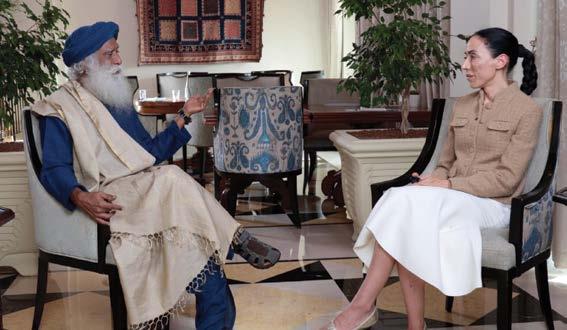
and exuberance. There is also Isha Insight: The DNA of Success program, a business leadership
'TREP TALK
"Taking a break for your inner well-being is not a pause. It is empowerment. If you don't have time to eat your breakfast, lunch, or dinner, tomorrow your ability to work will go down. Similarly, if you don't have time to service the interiors of your life, tomorrow your activity will be much lower. The productivity of a human being depends on how he or she is feeling right now. How pleasant is your experience of life? There's substantial medical and scientific evidence to show that only when you're in pleasant states of experience, your body and brain function at their best. If you want to do well in your business or in your enterprise, your body and brain must function well. It's very important."
intensive that explores the science of scaling up one’s business and self. But Sadhguru highlights that the foundation’s Ecstasy of Enlightenment program serves as a doorway to higher states of consciousness that are particularly needed in the business realm.
It starts with Sadhguru posing a compelling question- Would you rather live blissfully or miserably? He explains, "Human experience has a chemical basis to it. Bliss, ecstasy, agony, misery, anxiety, stress, or whatever you go through, have a chemical basis. You are not producing blissful chemistry because you have not even read the user's manual of this factory [the brain] to learn how it works, functions.”
The program derives from scientific research by Isha Foundation and the Beth Israel Deaconess Medical Center (BIDMC), a teaching affiliate of Harvard Medical School, that showed that doing
↑ Sadhguru and Tamara Pupic, Managing Editor, Entrepreneur Middle East
I WOULD SAY THAT IN THE NEXT 15 TO 25 YEARS, THERE COULD BE A SIGNIFICANT SHIFT HOW BUSINESS LEADERS FUNCTION. IT WILL NOT BE ABOUT HOW MUCH MONEY THEY CAN PERSONALLY ACCUMULATE, BUT ABOUT CREATING SOMETHING LARGER THAN THEMSELVES.”
simple 21-minute meditation practice for six to 12 weeks leads to brain-derived neurotrophic factor (BDNF) [a key molecule involved in plastic changes related to learning and memory] increasing by 70%.
"I can teach you to be blissed out all the time,” Sadhguru says. If you're blissed out and your mind is very clear, because there are no anxieties, no stresses, then you conduct your life much more sensibly. Whatever you do in your life, it is a very conscious process. Once you are in a conscious process, you are a far more effective. This must happen to every business, every entrepreneur, because an entrepreneur is an adventurous person,
wanting to walk into new terrain. If you are full of stress, new terrain is going to freak the hell out of you, because you are afraid of uncertainties. You will seek the familiar but no great progress will happen then.”
Ultimately, Sadhguru's vision for business leaders emphasizes shifting from personal ambition to broader, lasting goals. "I would say that in the next probably 15 to 25 years, there could be a significant change how business leaders function. It will not be about how much money they can personally accumulate, but about creating something larger than themselves. That's one of the most significant works for me right now,” Sadhguru concludes.
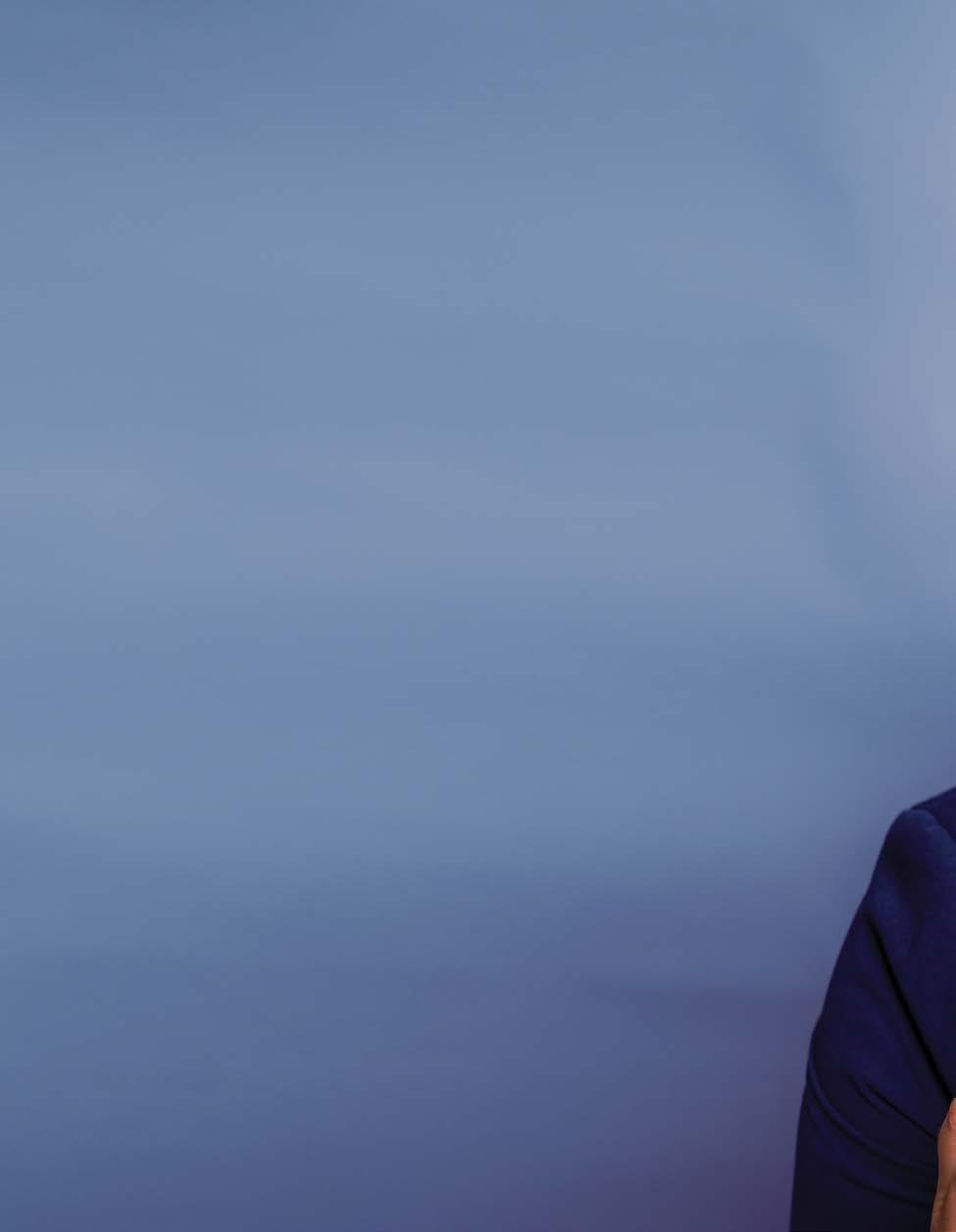
by TAMARA PUPIC

Favor, nostalgia, and creativity. The three words that Sarah Hamouda, a British-Egyptian co-founder of FIX Dessert Chocolatier (FIX), uses to describe the “Can’t Get Knafeh Of It” chocolate that she created back in 2022. “It truly began with a craving as I was heavily pregnant and just desperate to find something I couldn’t find anywhere else,” she says. “I wanted something nostalgic, indulgent and a little bit playful. In my mind, I kept picturing this dessert that was creamy, crunchy, and familiar but still a little unexpected. That’s when I started experimenting.”
In less than three years, FIX’s chocolate bars became a cultural moment- the world stops for a chance to enjoy this combination of milk chocolate, the shredded pastry known as kataifi, and a pistachio cream filling. That was obvious during the last World Economic Forum in Davos, where people braved the cold and waited in long lines for a taste of Hamouda’s chocolate bars. But it happens in Dubai too, at 14:00 and 17:00 every day, when daily production of 500 bars sells out on Deliveroo in a matter or minutes. Was Hamouda ready for the high
demand of her treats? “Honestly, not at all! We were learning as we went, adjusting processes in real time and constantly solving problems as they came up,” she says. “There were sleepless nights, but we kept going. While we may not have been fully prepared to meet the demand, we were determined to rise to the challenge and figure it out along the way.”
When this story started, both Hamouda and her husband and co-founder at FIX, Yezen Alani, were working full-time corporate jobs, juggling back-to-back meetings,

I WANTED SOMETHING NOSTALGIC, INDULGENT AND A LITTLE BIT PLAYFUL. IN MY MIND, I KEPT PICTURING THIS DESSERT THAT WAS CREAMY, CRUNCHY, AND FAMILIAR BUT STILL A LITTLE UNEXPECTED. THAT’S WHEN I STARTED EXPERIMENTING.”
tight deadlines, and batches of chocolate all at once. “Our days were packed and our nights were even busier, but we were fueled by something we truly believed in,” Hamouda recalls. “What really made it possible, especially in the early stages, was the incredible support from the people we surrounded ourselves with. As the FIX community started to grow, so did the demand for the product, and that’s when it became clear that the brand needed our undivided attention. Stepping away from our day jobs was a big decision, but it felt right. The brand had taken on a life of its own, and we knew it was time to give it all we had.”
Industry experts have praised the duo for creating “a dessert in a chocolate bar that is much more than just a regular chocolate bar,” while others believe that FIX chocolate’s resonance lies in its deep Middle Eastern roots as it reminds people of family traditions of sharing sweets. Yet, Hamouda explains there is much more to it. “I wanted to create something that felt personal but relatable,” she says. “A brand that tapped into nostalgia without leaning too heavily on it, and felt premium without being intimidating. I had people like myself in mind: emotionally connected to food, with a strong sense of taste, a sense of humor, and an eye for detail. Yezen, my husband, has been instrumental in naming our bars. He added that quirky twist that makes people smile. With FIX, we wanted it to feel like a treat, but also something that sparks curiosity and conversation.”
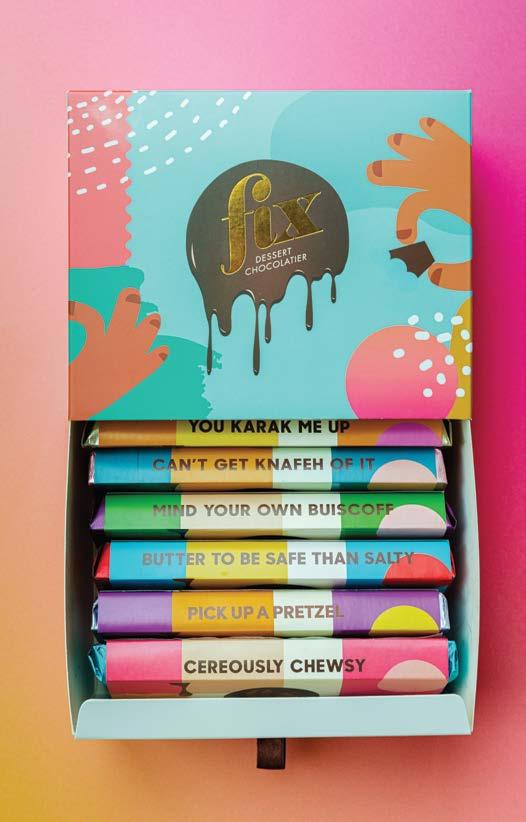
In December 2023, when TikTok influencer Maria Vehera posted a video of herself trying Hamouda’s chocolate bar, the FIX brand certainly did capture attention and get people talking. The video went viral, leading to nearly seven million likes to date, and caused the prompt christening of “Can’t Get Knafeh Of It” to “Dubai chocolate.” Hamouda says, “Maria’s video captured the

essence of FIX in such a raw, unfiltered, and engaging way. A few weeks later, my phone just wouldn’t stop buzzing. Messages started pouring in from all over the world, and we were completely caught off guard. I think that’s the magic of something genuine, it connects with people when you least expect it.”
She adds that the brand’s marketing strategy was completely organic. “People tried the bars out of curiosity or because a friend recommended it to them,” Hamouda explains. “Maria, who posted the video that ended up gaining so much attention, made me see our bars through a whole new lens. It wasn’t part of a strategy or campaign. She simply loved the product and wanted to share it.”
“The momentum came from real reactions and genuine word of mouth, and I think that’s exactly why it resonated. We didn’t have a structured marketing plan or budget. It was all about people connecting with the product and sharing it because they truly believed in it.”
FIX’s products remain solely available in Dubai, which adds to its exclusivity, but also causes some interesting shifts in the chocolate production sector worldwide. One is independent
chocolatiers and multinational brands, such as Lindt and Ülker, being urged to produce their own versions of the “Dubai chocolate” to meet the global demand. Another striking and unpredicted shift is the shortage of global pistachio supply due to the high demand for the basic kernels used in the FIX chocolate bars. “We’re incredibly proud to have inspired so many brands and individuals. Seeing the impact FIX has had on the dessert industry is something we never take for granted,” Hamouda says, and decides to share her views on the copycats of her business. “The frustration doesn’t come from others creating their own take on “Dubai chocolate.” It comes from those who directly replicate our intellectual property or use our branding to promote imitation products,” she explains. “We’ve put so much into building something original and thoughtful, and it’s important to us that our community can distinguish what’s truly FIX. We’ve trademarked what we can, and our focus remains on what matters most: staying creative, protecting our identity, and delivering an experience that only FIX can offer.”
THE FRUSTRATION DOESN’T COME FROM OTHERS CREATING THEIR OWN TAKE ON “DUBAI CHOCOLATE.” IT COMES FROM THOSE WHO DIRECTLY REPLICATE OUR INTELLECTUAL PROPERTY OR USE OUR BRANDING TO PROMOTE IMITATION PRODUCTS.”
The latest achievement of the FIX team was being able to create a limited edition of a new chocolate (the Emirati Halwa) for H.H. Sheikh Hamdan bin Mohammed bin Rashid Al Maktoum, Crown Prince of Dubai, Deputy Prime Minister, and Minister of Defence of the UAE. “We were asked to create a bespoke chocolate inspired by H.H. Sheikh Hamdan’s favorite dessert, Halwa, and we knew we had to get it right,” Hamouda says. “We spent time
PACING HAS DEFINITELY BEEN ONE OF THE BIGGEST LEARNING CURVES FOR US. IN THE EARLY DAYS, THERE’S SO MUCH ENERGY AND EXCITEMENT THAT IT’S TEMPTING TO SAY YES TO EVERYTHING AND TRY AND DO IT ALL AT ONCE. BUT OVER TIME, I’VE COME TO REALIZE THAT SUSTAINABLE GROWTH TAKES TIME AND PATIENCE. IT DOESN’T HAVE TO HAPPEN OVERNIGHT.”
understanding the traditional flavors, then brought in innovation, craftsmanship and the right team to give it the signature FIX touch. It took time, precision and a lot of passion, and honestly, it still feels like a dream we’re proud to be living.”
Looking back at the fast-paced global growth of FIX Dessert Chocolatier, Hamouda has a few tips to share with other entrepreneurs. “Pacing has definitely been one of the biggest learning curves for us. In the early days, there’s so much energy and excitement that it’s tempting to say yes to everything and try and do it all at once. But over time, I’ve come to realize that sustainable growth takes time and patience. It doesn’t have to happen overnight.”
She adds, “As the business evolved, I started to understand the value of stepping back a little. I’m incredibly lucky to be surrounded by a passionate, capable team, and learning to lean on them and trust the process has been a big shift for me. At the end of the day, great things are built together, and the strongest foundations are laid through steady, intentional growth.”
The biggest lesson they have learned along the way? “Build slow, build true, and never give up,” Hamouda says.
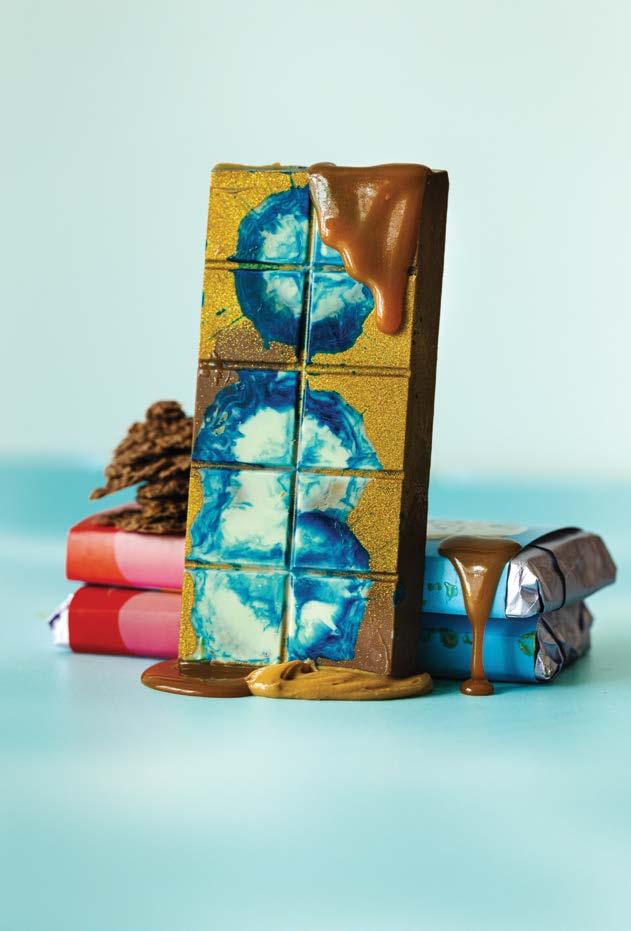
With the launch of its brand new Arabic document translation tool, Germany-headquartered DeepL is aiming to become the go-to AI business translation platform for the MENA region’s most widely spoken language.
by AALIA MEHREEN AHMED

→ David ParryJones is the Chief Revenue Officer at DeepL, a Germanyheadquartered AI-powered translation platform.
In January 2025, Germany-headquartered artificial intelligence (AI)-powered translation service provider DeepL revealed a study showing that 84% of professionals in the UAE and Saudi Arabia have integrated AI translation tools into their
workflows. Now, put this statistic in the context of both nations’ global economic milestones -which require efficient cross-border business communications and market access- and it immediately holds added value: in 2024, the UAE’s
total foreign trade stood at US$1.424 trillion (AED5.23 trillion), up 49% compared to its 2021 performance; while the Kingdom’s non-oil exports alone in 2024 reached $137.3 billion (SAR515 billion), marking a 13% increase from 2023. As
the Chief Revenue Officer at DeepL, David ParryJones has been able to closely observe the growing necessity for accurate translation tools.
“In this recent study conducted to understand the increasing integration of AI-driven language technologies within organizations, we also found that 46% of professionals in the UAE and KSA reported that AI translation tools have helped them expand their business into new markets,” he shares.
“Additionally, our findings revealed that AI-driven tools are mostly applied to developing new language skills (UAE: 52%; KSA: 51%), boosting efficiency and saving time (UAE: 50%; KSA: 51%), and managing supplier relationships (UAE: 45%; KSA: 47%).”
These, of course, are just two nations in a region that comprises over 20 Arabic-speaking countries.
“Arabic is the fifth most spoken language globally and has long been one of the most requested by our users,” Parry-Jones says.
“The language is spoken in over 22 countries and plays an important role in global communication.
→ DeepL is known for its clean and intuitive design that is easy to use even for non-tech-savvy users.

“
A POWERFUL STEP TOWARDS BREAKING
AND CONNECTING THE WORLD!
WE BELIEVE THAT LANGUAGE AI IS ONE OF THE MOST STRATEGIC INVESTMENTS A BUSINESS CAN MAKE.”
However, its right-to-left script, unique characters, and structural complexity made integration somewhat more challenging. Despite this, we’re now pleased to be unveiling document translation, joining our in-app and desktop
translation solutions.”
Indeed, DeepL’s Arabic Document Translation tool -launched officially on April 30, 2025- has been designed to simplify document translation for businesses and profession-
als that engage with Arabic-speaking markets across MENA. “Launching Arabic within the DeepL platform was a powerful step towards breaking down language barriers and connecting the world!” Parry-Jones adds. “We
believe that Language AI is one of the most strategic investments a business can make. Some of the sectors that benefit the most from Language AI are retail, manufacturing and legal, where high quality and accurate translation is vital. In retail, it increases efficiency by developing multilingual marketing assets and customer service tools, translating internal systems, and enabling seamless international expansion. In the legal sector, AI translation services help international law firms overcome language barriers. Additionally, in manufacturing, AI translation allows global manufacturing facilities to ease their supply chain and distribution with accurate translation of customs documents, product descriptions and local regulations.”

MODELS LIKE GPT-4, DEEPL IS TUNED SPECIFICALLY FOR LINGUISTIC ACCURACY. IN BLIND
TESTS WITH LANGUAGE EXPERTS, DEEPL’S TRANSLATIONS WERE PREFERRED 1.3X MORE THAN GOOGLE’S, 1.7X MORE THAN GPT-4’S, AND 2.3X MORE THAN MICROSOFT’S.”
↑ DeepL uses advanced neural machine translation (NMT) technology for accuracy and context awareness. As of now, the platform supports over 30 languages, including English, German, French, Spanish, Japanese, and now, Arabic.
Now, anyone with the slightest of linguistic interests would know that there are plenty of existing Arabic translation services already available. But the dire inaccuracies provided by these platforms have also been well documented in recent years. When DeepL’s Arabic Document Translation Tool was announced in late April, it claimed to outperform GPT-4, Google, and Microsoft in translation quality– something Parry-Jones assures isn’t an empty promise. “DeepL outperforms these models because our language model is purpose-built for translation, using proprietary training data
collected over seven years,” he explains. “Unlike general-purpose models like GPT-4, DeepL is tuned specifically for linguistic accuracy. In blind tests with language experts, DeepL’s translations were preferred 1.3x more than Google’s, 1.7x more than GPT-4’s, and 2.3x more than Microsoft’s. The model also requires significantly fewer edits, with Google needing twice as many, and GPT-4 three times more, to reach the same quality. We also rely on the expertise of thousands of hand-picked language specialists who “tutor” the model, resulting in best-in-class translation.”
DeepL’s decision to integrate the expertise of human translators has been pivotal in ensuring that the AI-powered machine translation platform incorporates the plethora of regional dialects within the Arabic language– a move that has, again, helped in outperforming its competitors. “Our expert team of translators are involved in many stages of our research and development (R&D) process, from building models for a new language to improving existing ones,”
Parry-Jones continues. “By incorporating a human element in the initial phases of our research, we avoid the risk of our translations sounding robotic and help ensure that our translations pick up cultural nuances. This also applies during the evaluation stage; while synthetic evaluations deliver quick results, the ground truth is to ask those that have invented and mastered the use of language to provide feedback on translations - how accurate they are, how nuanced, how native the language feels. Only we humans can judge on that. To this day, some of our earliest adopters and users are translators. We have recently introduced a new product called Clarify that helps customers clear up ambiguities by suggesting alternatives and asking contextspecific questions, ensuring translations capture the right meaning and nuance of what you’re trying to say.”
But within the scope of business data translation comes the mammoth risk of security lapses or information leaks. “Our Pro customers’ data is never stored or accessible to third parties!”
Parry-Jones reveals. “In case of data breach, DeepL is legally required to notify users within 72
hours, guaranteeing maximum confidentiality for sensitive content like reports, patents, and customer data. As a company based in Germany, DeepL adheres to the GDPR -one of the strictest data protection and privacy laws worldwide- ensuring data remains protected and compliant. Our advanced encryption and adherences to global regulations, including ISO 27001 and GDPR standards, ensures peace of mind and enables confident multilingual communication across borders.”
Offering additional ease to users is the fact that DeepL’s Arabic Document Translation Tool prioritizes popular formats such as Microsoft Word, Outlook, and PowerPoint as well as PDFS, while maintaining original layouts and fonts. It also allows users to edit their changes directly before downloading, allowing for increased control across supported file types. “We only launch a new language when we are confident that we can offer a better solution than what’s already on the market, and that includes Arabic,” ParryJones adds.
This faith in the platform’s performance has emanated from DeepL’s company culture- and if Parry-Jones words are anything to go by, it is all set to carry the platform towards its future goals too. “Since our inception, we have been a research-driven company and will continue to invest heavily in our development as a company within the next few years to create specialized translation and writing solutions to businesses worldwide,” he says. “Combining our depth of research with proprietary data accumulated over seven years, we’re able to understand unique business needs and address them with our solutions. With the launch
“Since our inception, we have been a research-driven company and will continue to invest heavily in our development as a company within the next few years to create specialized translation and writing solutions to businesses worldwide.”
of Arabic document translation in April and with any future products we take to market, we look forward to seeing how Middle Eastern businesses are able to use Language AI to expand their business across borders thanks to seamless communication. Working with businesses in the region, we will continue to learn and iterate the offering to make sure it provides them with the tools they need to expand their business across borders.”
Publicis Sapient CEO Nigel Vaz on transforming the consulting industry by blending deep industry knowledge with AI-powered innovation in order to reimagine what modern consulting can be for an intelligent age. by
ANIL BHOYRUL
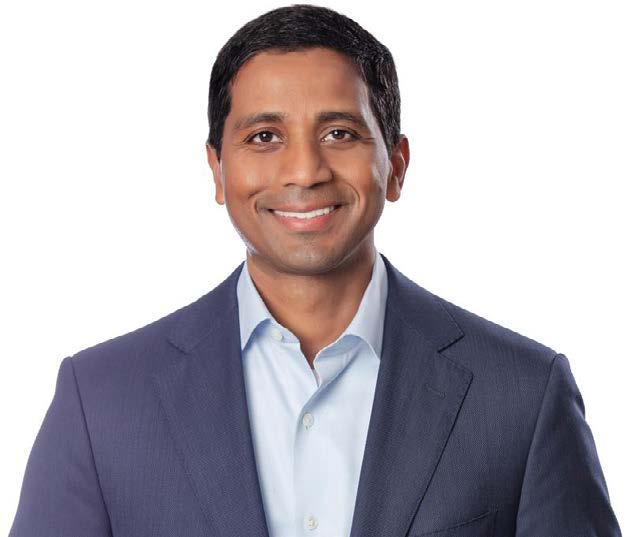
}According to your website, Publicis Sapient is “on a mission to reimagine impact” - can you expand on what that means?
Publicis Sapient (then called just Sapient) was founded in 1990, in the early days of the internet, on the belief that
technology would fundamentally transform how businesses operate. Today, that transformation is broader and faster than ever, encompassing AI, driven by evolving customer expectations and the need for organizations to become more adaptive and resilient.
Our purpose is that “we help people thrive in the brave pursuit of next”. This reflects our commitment to delivering digital business transformation that is not just technologically advanced, but deeply human, sustainable, and aligned with long-term business goals. So when we
say that we’re on a mission to reimagine impact, we’re describing an ambition far greater than delivering incremental improvements. It’s about helping organizations fundamentally rethink and realize how they create value – whether through entirely new business models and customer experiences or radically impactful operational efficiencies. We do this by focussing on organizations’ SPEED capabilities – Strategy, Product, Experience, Engineering, Data & AI – which allow us to address transformation holistically and accelerate client transformations.
Whether we’re helping Goldman Sachs launch new digital banking capabilities, working with Renault on EV charging innovation or partnering with Marriott to personalize travel experiences using generative AI intent-based search, we bring together technology, insight, and creativity to deliver superior business outcomes.
}You say Publicis Sapient is helping “companies survive and thrive in a world that is increasingly digital” - Do you feel many companies either are not surviving, or in danger of not surviving?
Technology, and the rise of digitally native organizations it enables, has long represented existential risk to established businesses. That risk has only intensified with advances in AI. What we’re seeing is a profound shift: AI isn’t just another technological trend; it’s a fundamental accelerant of digital business transformation. Companies that are not including the role and implementation of AI in their broader transformation plans are in real danger of falling behind and losing relevance.
At Publicis Sapient, when we say we help companies “survive and thrive” in a digital world, we mean supporting them in profoundly rethinking how they create value, combining technology and human talent to guide them through the AI era. It’s a moment of exponential change and, blinkered by short-term considerations, many businesses struggle to respond to such rapid and radical upheaval. The way for enterprises to make the most of AI is to get their data in order and keep testing what’s working and what’s not. Embed AI in decisionmaking, empower your teams with intelligent capabilities and redesign services around real-time insight and automation.
It’s a key aspect of digital business transformation, not just a tech upgrade. Survival is no longer about scale or legacy; it’s about adaptability. And those who understand how to use AI to unlock agility, relevance, and speed will not only survive, they’ll lead the way. Our job is to help them get there with clarity, confidence, and impact.
}Can you expand on AI-powered innovation in this region - what are the key trends you are seeing? How does the MENA region compare to the rest of the world in this field?
The Middle East is a critical player in the future of AI and digital business transformation. What we’re seeing in MENA is a region that’s moving with real intent and pace when it comes to AI-powered innovation. There’s a deep recognition – at both government and enterprise level – that AI is a generational opportunity to leapfrog traditional transformation curves and build digitally native economies. Take both Saudi Arabia and the UAE: governments are making significant infrastructure investments to foster innovation. Importantly, the region also has a strong commitment to developing local talent to drive these initiatives. That’s a powerful message about the long-term vision. In many ways, the region is less constrained by legacy systems and
thinking, which means organizations are often more open to bold, structural change. Whether it’s national AI strategies, future-focused investment funds, or mega projects that integrate smart infrastructure and services, the ambition is very real.
From a business transformation perspective, we’re seeing AI being applied in ways that are highly strategic: from intelligent customer experiences in retail and banking, to predictive healthcare, to public services that are increasingly citizen-centric. The integration of AI into broader digital business transformation efforts is happening faster here than in many more mature markets, simply because the appetite for disruption is higher and the barriers to change are lower.
Where MENA stands out is in its willingness to scale – to not just pilot AI, but to embed it across entire systems. That’s critical, because AI’s value comes not from isolated use cases, but from reimagining how organizations operate end-toend. The next frontier is moving from experimentation to industrialization, and in that regard, this region is positioning itself as a global leader.
Publicis Sapient continues to expand its footprint in the Middle East and our role is to help translate that ambition into action, ensuring that the impact of AI isn’t just technologi-
cal, but meaningful and measurable across people, performance, and purpose.
}What does modern consulting look like to you in ten years’ time?
We’re already in the midst of a massive shift in consultancy work. Ten years from now, consulting as we know it will look fundamentally different because the problems we’re helping clients solve will be fundamentally different. Modern consulting will be defined by its ability to deliver impact at speed, not through scale of people, but through scale of intelligence. AI, data, and engineering will be at the core, enabling firms to move from advising to actually building and evolving solutions in real time. It will be less about projects, and more about continuous transformation – embedded, adaptive, and outcome-led. That’s the model we’re already shaping at Publicis Sapient.
At its core, consulting will be deeply intertwined with technology: particularly AI, but also with data, product and experience design. It won’t be enough to tell clients what to do; we’ll need to help them build it, run it, and evolve it in real time.
We are already seeing a consulting shift from a project-based engagement model to long-term, platform-based partnerships, where value is delivered iteratively, in cycles of experimentation, learning and scale. It will }}
be more multidisciplinary, more hands-on, and much closer to the operational heart of the client’s business. In that future, the most valuable consultants won’t be the ones with the best frameworks – they’ll be the ones who bring the right mix of empathy, engineering, and entrepreneurship.
So, for me, modern consulting is not about advising from the outside; it’s about transforming from within. It’s bold, it’s real-time, and it’s measured not by recommendations, but by results.
}What are the main risks you see with AI innovation in the coming years?
AI holds enormous potential, but it comes with risks that businesses, governments, and society must navigate thoughtfully. One of the biggest risks isn’t technical, but organizational. Many companies are rushing to adopt AI without first understanding what problem they’re solving, or how to embed it responsibly into their operations. That leads to fragmented use cases, ethical grey areas, and often, missed opportunities. The risk isn’t that AI will fail; it’s that it will fail to be implemented with purpose.
There is also the very real concern around bias, privacy, and transparency. AI systems are only as good as the data and governance behind them. If we don’t put the right safeguards in place and ensure AI is explainable, accountable, and inclusive, we risk eroding trust before the technology even reaches maturity.
And finally, there’s a cultural risk. AI is often framed as a replacement for human capability, when the true opportunity lies in augmentation. The organizations that will thrive aren’t the ones using AI to replace people, but the ones using it to elevate them – freeing teams from repetitive tasks and empowering them to focus on more strategic, creative, and value-driven work. It’s about investing not only in your people, but in the tools that amplify their potential. Think of it like Iron Man and
the suit: the real power doesn’t lie in the technology alone, or the individual alone, but in the combination. When human ingenuity meets intelligent systems, that’s when you get truly transformative impact.
So, the challenge ahead isn’t just to build powerful AI; it’s to apply it in ways that are human-centric, ethically sound, and aligned with long-term impact. That’s where real leadership will lie.
You have worked with so many different clients in different sectors. Which have been the highlights?
Throughout my career, I’ve had the privilege of working with a diverse array of organizations across sectors including financial services, retail and consumer products, automotive, hospitality, and the public sector. Each has brought unique challenges and opportunities. My book Digital Business Transformation: How Established Companies Sustain Competitive Advantage From Now To Next, elaborates on my experience in partnering with clients on how to take a holistic and multidisciplinary approach that infuses digital into superior business outcomes.
Publicis Sapient is a digital native organization that built some of the first online banks, share-trading platforms and content-rich paywall platforms for media organizations. The first airline seat-selection tool was built by Publicis Sapient, a digital product that, even today, represents the second largest generator of revenue for airlines. For more than 30 years, Publicis Sapient has helped many Fortune 50 organizations to transform their businesses. Today it continues to chart the course for how technology can be harnessed to make a positive difference in the world, through innovations such as ‘Plug Inn’ – the award-winning, peer-to-peer electric vehicle charging platform for Renault.
We’ve helped financial institutions modernize their infrastructure and reimagine customer experiences
through AI and data. In retail, we’ve led large-scale digital business transformation, from platform migrations to supply chain reinvention. In automotive, we’ve developed new service-based business models around emerging mobility trends, while in travel and hospitality, we’ve used AI to make experiences more personalized and intuitive.
What unites all of this work is a shared commitment to transformation that delivers real, measurable impact – not just through technology, but by reshaping how organizations create and deliver value in a digital world.
}You have been named as a Top 25 Global Leader - what are the key attributes needed for successful leadership?
The recognition is an honor but, for me, leadership has never been about titles or accolades. It’s about creating the conditions for others to succeed. The world we operate in today – fastmoving, unpredictable, and increasingly shaped by technology – demands a very different type of leadership than it did even a decade ago.
The most important attribute is clarity of purpose. Leaders need to provide a clear sense of where the organization is headed and why it matters. That clarity becomes a compass in moments of change or ambiguity – and there will always be plenty of both.
Second, empathy is non-negotiable. In a world being transformed by AI, automation, and complexity, the human element becomes more – not less – important. Leaders must be able to understand and respond to the emotional and psychological needs of their teams, customers, and communities.
Third is the ability to learn, unlearn and relearn. The power of being able to learn on an ongoing basis means you can let go of things that you learned yesterday to learn new things today. You have to actively unlearn the things you learned yesterday, because what
made you successful back then is likely not going to make you successful now. And, finally, resilience. Transformation at any scale – whether it’s personal, organizational, or societal – doesn’t happen in a linear fashion. The ability to stay grounded, navigate complexity, and adapt in real time is what separates good leaders from truly impactful ones.
In the end, leadership today isn’t about having all the answers. It’s about empowering others to ask the right questions, and creating a culture where those answers can emerge, evolve, and scale.
}Is leadership something that can be taught to anyone - or do they need specific qualities in their DNA?
I believe leadership is absolutely something that can be developed, but it has to be intentional. There’s often this myth that leadership is something you’re born with, that it’s about charisma or command. But the reality is that great leaders are shaped by how they respond to challenges, how they grow, and how they bring others along with them.
Of course, certain qualities help – curiosity, resilience, empathy – but I see those less as fixed traits and more as muscles that can be strengthened over time. The best leaders I’ve worked with are the ones who are constantly learning, listening, and evolving, not the ones who think they already have all the answers.
Survival is no longer about scale or legacy; it’s about adaptability. And those who understand how to use AI to unlock agility, relevance, and speed will not only survive, they’ll lead the way
In today’s world, especially in the context of AI and digital business transformation, leadership is less about control and more about clarity and culture. Can you create an environment where others thrive? Can you give people a clear purpose, and then the space to innovate around it?
So no, I don’t think leadership is limited to a select few. But I do think it demands a commitment to self-awareness to feedback and to growth. Because the moment you stop evolving as a leader is the moment your organization stops evolving with you.
}Can you tell us how you see Publicis Sapient in the next decade? Will it be a very different company to what it is today?
Over the next decade, Publicis Sapient will continue to evolve – not in identity, but in capability.
The pace of change in technology, particularly with AI, means we must constantly adapt to remain the kind of partner our clients
need: one that not only helps them navigate disruption, but actively leads them through it.
What will remain constant is our purpose: to drive meaningful digital business transformation, powered by AI, and “help people thrive in the brave pursuit of next”. But with AI advances now firmly part of clients’ broader digital business transformation requirements, how we deliver on that purpose is already evolving.
Publicis Sapient has recently evolved itself to focus on three business areas: Core Digital Business Transformation, Legacy Modernization, and AI for Marketing.
To power these focus areas, Publicis Sapient has developed proprietary AI platforms and accelerators: Bodhi, our enterprise-scale agentic AI platform; Sapient Slingshot , an AI software development platform accelerator; and CoreAI, created by Publicis Sapient with our parent company Publicis Groupe, to connect
marketing and commerce with real-time intelligence, creating new levels of relevance and efficiency for brands around the world.
Publicis Sapient believes that the company’s business focus areas, underpinned by proprietary AI tools that empower clients to accelerate transformation through growth-oriented value creation, cost-out innovation or both, reflect the client demand-led shifts that will come to reshape our industry.
Whether it’s building the world’s first digital trade finance bank Anglo-Gulf Trade Bank (AGTB) from scratch, based on simplifying and supplying clientcentric trade banking and facilitating digital ecosystems through efficient data operations, reimagining retail for Carrefour and Walmart, or reducing software development timelines for large healthcare systems, our focus is always the same: to get to the core of how these enterprises are driving growth, reimagining and taking cost out of their businesses to create measurable impact. So yes, we will be different in form. We’ll be more AI-native, more embedded in our clients’ operating models, and even more focused on delivering value at speed. But in terms of who we are and what we stand for – we’ll be exactly the same: a digital business transformation partner that’s deeply committed to helping clients lead in a world that never stops changing.
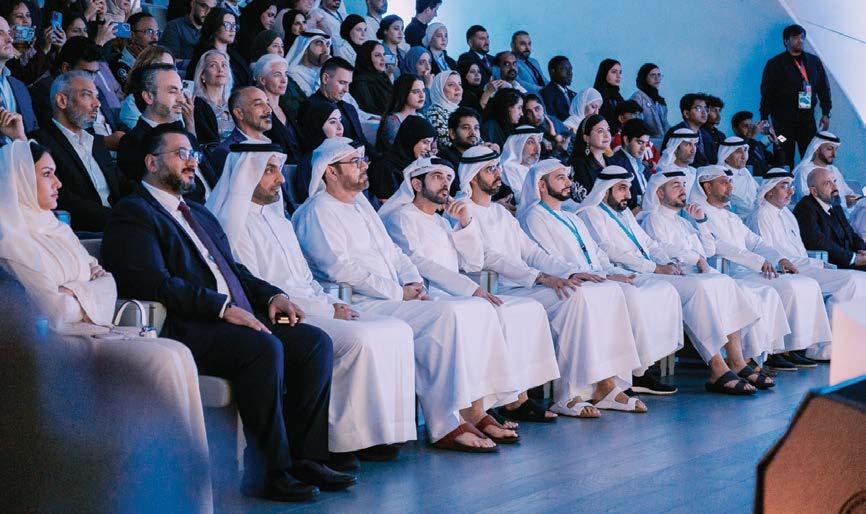
Dubai Chamber of Digital Economy’s Create Apps Championship celebrates its 2025 winners.
by ENTREPRENEUR MIDDLE EAST STAFF
The conclusion of the widely anticipated second edition of Dubai Chamber of Digital Economy’s (DCDE) Create Apps Championship took place at the Museum Of The Future on April 16, 2025 in the presence of H.H. Sheikh Hamdan bin Mohammed bin Rashid Al Maktoum, Crown Prince of Dubai and Chairman of Dubai Executive Council. Four winning teams walked away with a prize fund of US$150,000 each, with one of them also receiving the added title of “Dubai’s App of the Year.” Additionally, the winners will receive support in business licensing, banking
services, as well as access to potential partners and clients courtesy DCDE.
“We are committed to expanding our investments in state-of-the-art digital technologies to solidify Dubai’s position as a global hub for technological innovation,” Sheikh Hamdan said during the event.
“As part of this vision, Dubai is forging its own path toward a knowledge-based economic model—one that is powered by advanced technologies and their vast capabilities, which lay solid foundations for a sustainable digital economy that supports Dubai’s comprehensive development across all sectors.”
Create Apps Championship is part of a wider initiative Create Apps in Dubai’ initiative launched by His Highness in March 2023 to enhance Dubai’s position as a global leader in the digital technology and smart applications sectors.
In its second year, the Create Apps Championship opened up its doors to tech enthusiasts from across the globe, attracting more than 4,710 applications (a four times increase from the 1,110+ applications seen in the first edition) from 132 countries.
70% of these initial submissions came in from international applicants.
Over the series of qualifying rounds that followed since November 2024 -when the contest’s applications officially closed- 775 participants qualified for the first stage, 332 made it to the quarterfinals and 24 teams made it to the semifinals. The finals round saw 12 teams battling it out for top spots in their respective categories.
Indeed, a total of four categories
comprised the Create Apps Championship this year, namely: Most Impactful App, Best Youth-made App, Best Mobile Gaming App, and Most Innovative App. Each category had three finalists, making up the aforementioned 12 finalists.
With a whopping 98% of all applications incorporating the use of artificial intelligence (AI) into their mobile apps, the top sectors targeted by them included health and wellness, edtech, travel and tourism, e-commerce, sustainability, and gaming.
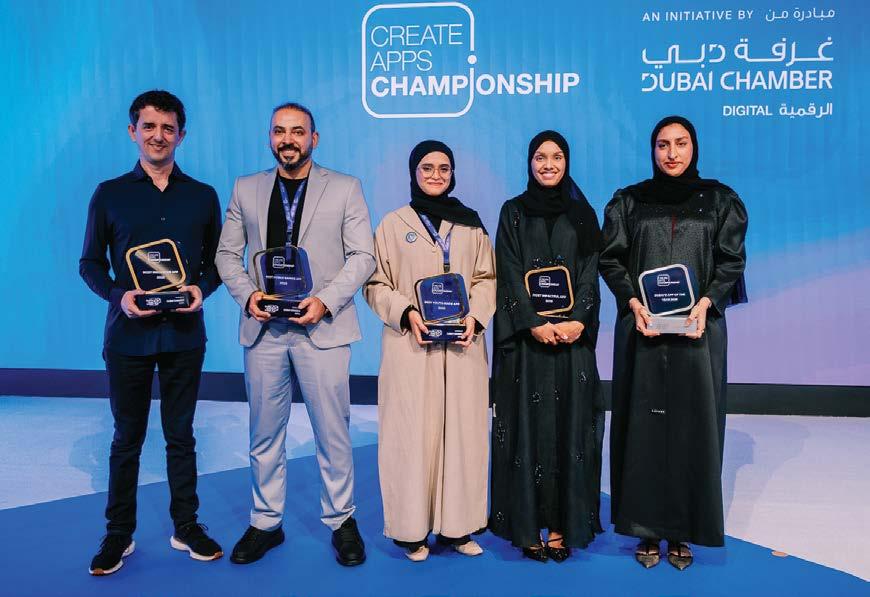
Four among the 12 finalists walked away with top honors after presenting to a jury of judges comprising: Faisal Albreiki, Senior Director AI & Data of e&; Ghinwa Krayem, Director of Experience Management
The jury of judges for the Create Apps finals (left to right): Sven Herzing, CTO at Talabat; Ghinwa Krayem, Director of Experience Management at DEWA; Faisal Albreiki, Senior Director AI & Data of e&; Mahmoud Ward, Head of Investments at Dubai Future District Fund; and Osman Sultan, Chairman of FIKRA.
at DEWA; Mahmoud Ward, Head of Investments at Dubai Future District Fund; Osman Sultan, Chairman of FIKRA; and Sven Herzing, Chief Technological Officer at Talabat.
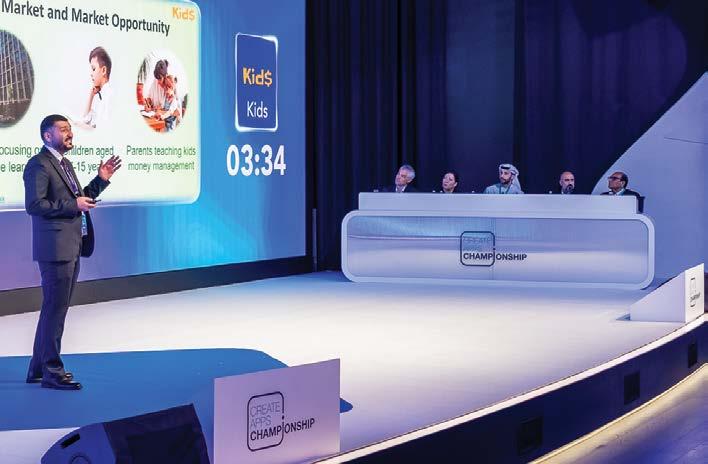
All the winners and participants of the Create Apps 2024-25 edition.
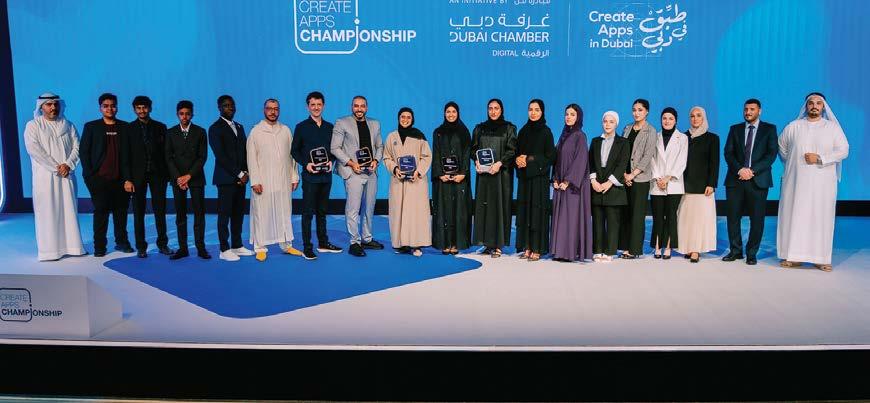
AWARDED BY H.H. SHEIKH HAMDAN HIMSELF, THE WINNERS OF THE SECOND EDITION OF DUBAI CHAMBER OF DIGITAL ECONOMY’S CREATE APPS CHAMPIONSHIP ARE AS FOLLOWS:
MOST IMPACTFUL APP + DUBAI’S APP OF THE YEAR: BOOM
A logistics app that helps businesses deliver their products by matching them with available nearby vehicle owners.


BEST MOBILE GAMING APP: RIMAL GAME
An online multiplayer game where players compete in teams and trade resources.
BEST YOUTH-MADE APP: BIEBITE
An AI-powered food market app that helps users check if products meet their dietary requirements and allergen preferences before purchasing.

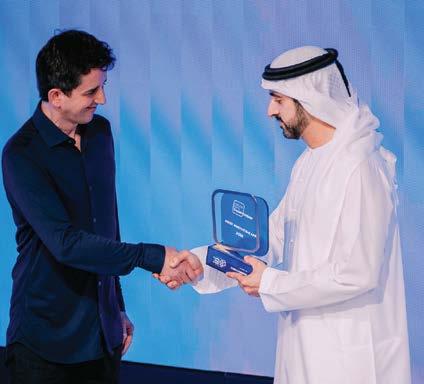
MOST INNOVATIVE APP: BRAINY
An app that leverages the power of artificial intelligence to help knowledge workers and students avoid information overload by delegating mental tasks to the advanced tchnology.



The Chedi Private Residences are bringing a new meaning to the phrase “luxury living.” We speak to the key players behind this spectacular project.
Majestic. A masterpiece. Game changing. These are just some of the words being used to describe the Chedi Private Residences. A curated collection of 117 exquisite homes designed for those who cherish tranquillity amid the vibrancy of the city. Every residence is more than just a living space; it is a sanctuary inspired by the revered Chedi brand, where peace and beauty intertwine.
Perched in the prestigious heart of Dubai, The Chedi Private Residences on Sheikh Zayed Road redefines luxury living with architectural brilliance. The Chedi stands out in the bustling cityscape with sleek, all-white exteriors and spacious interiors flooded with light from floor-to-ceiling windows. With open-plan layouts and expansive social terraces, these sky villas
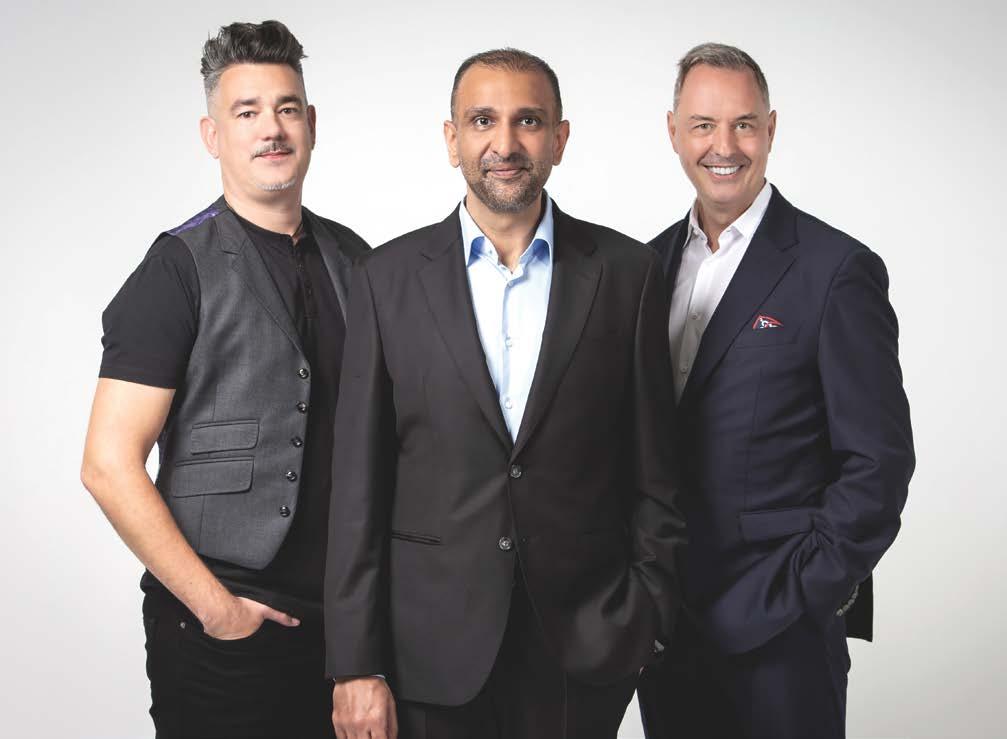
offer a new standard of contemporary urban living.
Soaring 240 meters over 52 floors, this architectural marvel, with its glass façade, is masterfully designed by the award-winning Studio Bruno Guélaff.
But Guélaff is just one of four key players who have come together for a project that sees a mix of two-, three- and four-bedroom apartments as well as penthouses and duplexes. Developed by Al Seeb Properties, who have worked closely with Chedi Hospitality, the project – when complete in 2029 – promises to be more than just a stunning building.
The Resort Social level offers facilities including a 60-metre lagoon-inspired pool, cabanas, a wellness club, a private cinema, a
health club with a gym, spa, saunas and plunge baths, private padel courts, a jogging track, a barbecue area with a lounge garden and a fitness centre.
The Sky Social level, located 240 metres above ground, comprises an adults-only infinity pool, a sky bar, a sky café, a sunken lounge and an Omakase dining experience.
Interior design details include social kitchens created by Italian designer Pedini, Miele appliances, travertine floors and countertops, and bathrooms fitted with smart mirrors along with Kohler and Hansgrohe fixtures.
In a special report, we speak to the four key players behind a project that is not only already the talk of Dubai, but one that is set to redefine luxury living in the region.
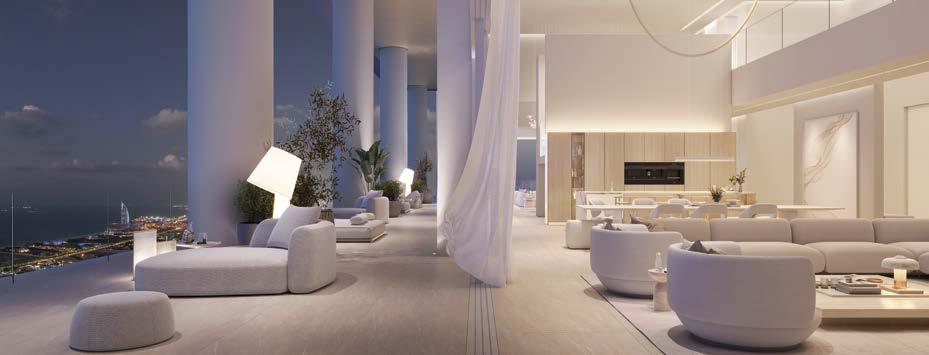
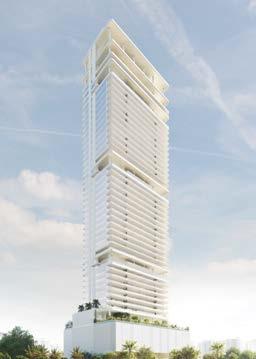
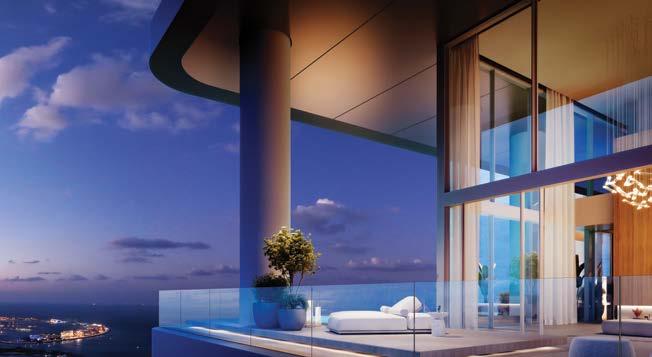

“A
As vice chairman of Al Seeb Properties, Mahesh J. Kalwani has been the driving force of the project.
Can you tell us more about Al Seeb Properties – an overview of its current size, main areas of activity and projects underway?
Al Seeb Properties operates as the real estate development arm of Al Safeer Group of Companies. We’ve established ourselves as a significant player in the UAE property market with a diverse portfolio spanning retail, commercial, and now luxury residential developments. Our current operational footprint includes several shopping destinations that fall under the Al Safeer umbrella, along with commercial properties throughout the region.
In terms of scale, we’ve maintained steady growth while prioritizing quality over rapid expansion. Our team comprises industry veterans with expertise across architectural design, project management, and hospitality integration. Currently, our flagship development is The Chedi Private Residences, marking our strategic entry into the luxury branded residences segment. We also have several retail and mixed-use developments in various planning stages that align with Dubai’s urban development vision.
Al Seeb has been operating for 30 years – what have been the major milestones in this journey?
The 30-year journey of Al Seeb Properties has been defined by strategic evolution and adaptation to market dynamics. Our inception coincided with the UAE’s early efforts to diversify beyond oil, allowing us to
participate in the nation’s transformative growth.
Key milestones include our early focus on retail developments, which established our foundation in the real estate sector. The successful launch and operation of multiple shopping destinations under the Al Safeer Group demonstrated our ability to create commercially viable spaces that resonate with consumers.
Another significant milestone was our expansion into commercial properties, which broadened our portfolio and strengthened our position in the market. Our integration of hospitality principles into property development represented a pivotal shift in our approach, emphasizing experiential value beyond physical structures.
Most recently, our partnership with The Chedi for branded residences marks a defining moment, positioning us in the luxury segment and reflecting our commitment to elevating Dubai’s residential offerings.
More specifically, the Chedi Private Residences is your inaugural entry into branded luxury living. What made you decide to enter this market? Our decision to enter the branded luxury living market stemmed from a convergence of market evolution and our own organizational readiness. We recognized a significant shift in luxury homebuyers’ preferences—increasingly, discerning buyers seek not just premium physical spaces but comprehensive lifestyle experiences with the assurance of world-class service
standards.
My background spanning both retail and hospitality sectors provided unique insights into this trend. The branded residence model perfectly bridges real estate development with hospitality excellence—a space where we saw tremendous opportunity to differentiate ourselves.
Additionally, Dubai’s position as a global luxury destination created the ideal environment for this venture.
The city attracts a sophisticated international audience that appreciates branded living concepts that have proven successful in markets like London, New York, and Singapore.
When the opportunity to partner with The Chedi presented itself, the timing aligned perfectly with our strategic vision. Their impeccable reputation for refined elegance and exceptional service standards matched our aspiration to create truly distinctive living environments.
You describe it as a “bold step forward” – can you expand what you mean by this?
When I describe The Chedi Private Residences as a “bold step forward,” I’m referring to multiple dimensions of this venture that represent significant advancement for Al Seeb Properties.
First, it marks our strategic elevation into the ultra-luxury segment—a considerable leap from our previous developments. This requires meeting exceptionally high standards across design, materials, construction quality, and service integration.
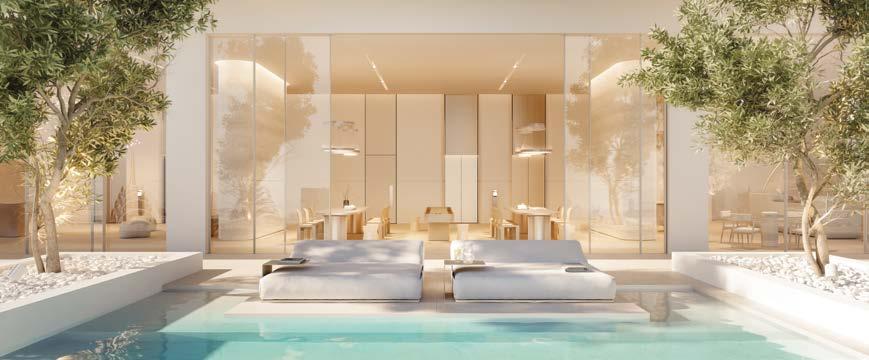
Second, the branded residences model itself represents a sophisticated approach to development, requiring seamless coordination between property development and hospitality operations. This integration demands a level of organizational complexity we’ve embraced as part of our evolution.
Third, the scale and prominence of this project significantly raises our profile in the market. We’re no longer just developing properties but creating a landmark that contributes to Dubai’s iconic skyline and global reputation.
Finally, the financial commitment required for a development of this caliber demonstrates our confidence in both our vision and Dubai’s continued growth trajectory. It’s a statement of our ambition and long-term perspective on the market.
Can you tell us more about the project, in terms of what you see as some of its main attractions?
The Chedi Private Residences represents a meticulous fusion of architectural excellence, premium location, and The Chedi’s renowned hospitality DNA. Among its most compelling attractions is the architectural concept, which balances contemporary design with subtle references to regional aesthetics. The structure itself is designed to maximize views while creating a sense of exclusivity and privacy for residents.
Inside, the residences feature expansive layouts with ceiling heights that exceed industry standards, creating an immediate sense of grandeur. The interior design philosophy emphasizes understated luxury—premium materials selected for both beauty and longevity, with bespoke finishes that feel both sophisticated and comfortable.
The amenities suite elevates daily living with facilities that rival five-star resorts: infinity pools with panoramic views, a comprehensive wellness center with spa facilities, private dining areas for entertaining, and concierge services managed according to The Chedi’s exacting standards.
What truly distinguishes this project, however, is the integration of The Chedi’s hospitality philosophy into residential living. Residents benefit from personalized services typically associated with the world’s finest hotels— from valet and housekeeping to bespoke experiences curated by dedicated staff who understand individual preferences and anticipate needs. The location itself is another significant attraction, offering both connectivity to Dubai’s major business and leisure destinations while providing a sense of retreat from urban intensity.
What are the current timelines, in terms of current progress and completion dates/phases?
The Chedi Private Residences development is progressing according to our carefully structured timeline. We’ve completed the design and planning phases with all necessary approvals secured. Ground breaking is expected to commence between Q3 and Q4 of 2025, following our comprehensive pre-construction preparation work. We’ve implemented a phased development approach to ensure quality control at every stage. The structural framework is scheduled for completion by Q4 2027, with
interior fitting and finishing work to follow. The landscape and exterior elements will be developed concurrently with the later stages of interior work.
Based on this timeline, we anticipate the first phase of residences will be ready for handover in Q1 2029, with full project completion following shortly thereafter. Our sales timeline has been aligned with construction milestones, with an initial release of units already generating strong market response.
Throughout this process, we’ve prioritized transparent communication with buyers, providing regular updates on construction progress. While we’re committed to these timelines, we’ve also built in contingency planning to accommodate any unforeseen circumstances without compromising quality.
Dubai is a very thriving real estate market, but that also means it is extremely competitive. How do you stand out from the crowd? What in your view makes this project both unique and special?
In Dubai’s competitive landscape, The Chedi Private Residences distinguishes itself through several key differentiators. First, our partnership with The Chedi brings a hospitality pedigree that few branded residences in the market can match. Their distinctive approach to service— unobtrusive yet anticipatory—creates an atmosphere of refined comfort rather than ostentatious luxury.
Second, we’ve taken a deliberately different approach to design. While many luxury developments in Dubai emphasize visual spectacle, we’ve focused on creating living spaces that balance aesthetics with genuine livability. Our residences feature thoughtful spatial planning, superior acoustic engineering, and climate-responsive design elements that enhance daily living.
Third, we’ve implemented a strict density control philosophy, limiting the number of residences to ensure exclusivity and allow for more generous private spaces. This approach contrasts with the market trend toward maximizing unit count and creates a more intimate residential community.
Additionally, our location strategy targeted an area that offers both established infrastructure and growth potential, providing residents with immediate convenience while protecting long-term investment value.
Perhaps most importantly, we recognized that true luxury increasingly means sustainability and wellness. We’ve incorporated advanced environmental systems that significantly reduce resource consumption while enhancing resident comfort, and wellness features that promote physical and mental wellbeing.
These elements combine to create a residential offering that appeals to buyers seeking substance beyond status—a home that enhances their quality of life rather than simply signaling their achievement.
Do you see the current boom in Dubai property continuing or do you feel the market has peaked?
The Dubai property market demonstrates remarkable
resilience and structural strength that suggests sustained growth rather than a speculative peak. Several fundamental factors support this outlook.
First, the emirate’s continuous infrastructure investment creates genuine value enhancement, unlike markets where appreciation outpaces real development. Projects like Dubai 2040 Urban Master Plan provide a coherent framework for growth rather than haphazard expansion.
Second, Dubai has successfully diversified its economy beyond its traditional sectors, attracting talent across financial services, technology, healthcare, and creative industries. This economic diversification creates organic housing demand from resident professionals, not just investment interest.
Third, recent regulatory improvements have matured the market considerably. Measures controlling supply, transparent transaction processes, and protections for buyers have created a more stable environment compared to previous cycles.
That said, we recognize market segmentation is increasingly evident. While certain segments may experience periodic adjustments, the luxury sector—particularly for products offering genuine quality and innovation—shows consistent demand from both regional and international buyers.
Our development strategy acknowledges this nuanced reality. Rather than pursuing aggressive expansion across all segments, we’re focusing on creating exceptional value in the luxury residential sector where buyer discernment favors quality over quantity.
In summary, while specific neighborhoods or product categories may face temporary oversupply, Dubai’s fundamental attractiveness as a living and investment destination remains compelling for the foreseeable future.
What is your long-term vision for the company – where do you see it in ten years?
In the next decade, I envision Al Seeb Properties evolving into a boutique luxury developer recognized for creating living environments that transcend conventional real estate categories. Rather than pursuing aggressive volume growth, our trajectory focuses on developing a carefully curated portfolio of exceptional properties that each contribute something distinctive to Dubai’s urban landscape.
The success of The Chedi Private Residences will serve as a foundation for expanding our branded residence collaborations, potentially bringing other distinguished hospitality brands into residential partnerships. However, we’ll maintain selectivity in these relationships, ensuring each brand partnership offers a truly differentiated living experience.
Beyond branded residences, we aim to pioneer new residential concepts that anticipate evolving lifestyle preferences. This includes exploring communities built around specific wellness philosophies, creative districts that integrate living and working spaces for the cultural
sector, and multigenerational developments that accommodate changing family dynamics.
Sustainability will transition from being a feature of our developments to becoming their defining characteristic. We’re investing in research partnerships to incorporate emerging green technologies and circular economy principles into our projects, setting new standards for environmentally responsible luxury.
Geographically, while Dubai remains our primary focus, we’re exploring selective opportunities in other Emirates and potentially key international markets where our design philosophy and service integration approach would represent a meaningful contribution to the local property landscape.
Throughout this growth, we’ll maintain our commitment to creating spaces that foster genuine community and enhance residents’ wellbeing—ensuring that commercial success follows from delivering exceptional living experiences rather than driving our decisions.

Bruno Guélaff – Design Director, Studio Bruno Guélaff, is the architectural brains behind the project.
Can you tell us more about BG Group – where it stands today in terms of key projects underway, and a look back at its origins?
BG Group was born from a powerful partnership between myself and Khalid Kaluti. We first crossed paths as clients— each admiring the other’s work—and quickly realized that together, we could build something exceptional. Our shared vision was to create a transparent, trustworthy Design + Build company delivering an elevated, full-service experience for clients seeking high-end residential projects. Today, BG Group handles a portfolio of bespoke villa projects across Dubai, from Dubai Hills to Pearl Jumeirah, offering a full turnkey service. We cover everything from architecture and interior design to MEP, home automation, landscaping, pools, lighting, and kitchens via our Italian brand, Pedini. We pride ourselves on having a deeply involved, award-winning team of architects, engineers, and craftsmen who ensure that each project is executed with precision and care.
It has been quite a journey to this stage – looking back what have been the highlights and biggest challenges?
The journey has been incredibly rewarding. One of the biggest highlights has been seeing the impact of our work on families—designing not just houses but true homes. Winning ‘Architect of the Year 2024’ was another proud moment, a testament to years of dedication. As for challenges, balancing innovation with functionality and staying ahead in such a fast-moving market like Dubai has always required deep focus. But it’s this pressure that drives our creativity.
The Chedi Private Residences is described by you as “an architectural marvel.” Please expand on what you mean by this?
The Chedi Private Residences is a landmark project that redefines branded residential living. Architecturally, it’s a towering expression of elegance—soaring 240 meters with a sleek, modern glass façade and bold structural articulation. From the outset, our goal was to design not just a building but an experience. Every detail, from the grand proportions to the spa-like bathrooms, terraces, and smart systems, is meant to evoke emotion and offer serenity within a bustling urban context. It’s a harmonious blend of innovation, luxury, and timeless design.
Can you take us through the process of designing such an impressive property – in particular, the inspiration behind this?
The inspiration stemmed from The Chedi brand itself—its legacy of blending cultural authenticity with modern refinement. We looked at how their properties around the
world create atmospheres of calm and beauty. That DNA became the soul of this tower. We aimed to bring villa-style living into a high-rise context, with expansive layouts, seamless indoor-outdoor connections, and refined material palettes. Our studio led the entire design scope—from architecture to interiors to landscaping—ensuring a fully integrated vision.
What are the features that you are most proud of?
There are many, but I’d say the proportions of the spaces—3.2-meter-high ceilings, expansive terraces, and the flow of each residence—is what I’m most proud of. The triplex Penthouse, with its plunge pools and sweeping views, is a standout. I’m also incredibly proud of how we created a true lifestyle ecosystem within the building, from the rooftop infinity pool to the Omakase restaurant, spa, and resident-exclusive amenities. It’s a complete world in itself.
It is notable that all units – even the smallest – are significantly larger than those of similar concepts by competitors. What was the thinking behind this?
It was a conscious decision. In a market saturated with cookie-cutter layouts, we wanted to offer something extraordinary. Every unit, regardless of size, had to feel generous and luxurious. These are homes, not just apartments. The layout encourages comfort, social interaction, and tranquility—values that align perfectly with The Chedi brand and with how we approach design at our studio.
You are known to be very hands on – what was your level of involvement in this project?
Extremely hands-on. From the first concept sketches to the selection of materials, spatial layouts, lighting studies, and even branding touchpoints—our studio oversaw every element. My involvement ensures that there’s a single creative vision carried through from macro architecture to the finest interior detail. It’s what allows us to maintain a consistent sense of emotional and spatial harmony throughout.
Can you tell us more about the project, in terms of what you see as some of its main attractions?
Its location on Sheikh Zayed Road offers prime connectivity, but what sets it apart is the integration of The Chedi lifestyle—understated elegance, wellness, and world-class hospitality. The amenities are curated, not just added: lagoon-style pools, rooftop fine dining, a cinema, children’s zones, private padel courts, and spa facilities. Each element is infused with intent, curated to offer both beauty and function.
Dubai is a very thriving real estate market, but that also means it is extremely competitive. How do you stand out from the crowd? What in your view makes this project both unique and special? We stand out because we don’t compromise. Whether it’s a single villa or a 52-floor tower, the level of attention, design integrity, and personalization is the same. The Chedi Private Residences sets itself apart through scale, curation, and brand legacy. There’s nothing else like it that combines such expansive layouts, refined detailing, and a full lifestyle offer within a branded residence. It’s the first of its kind, and we’ve ensured it stays in a category of its own.
Do you see the current boom in Dubai property continuing or do you feel the market has peaked?
I think there’s still momentum, especially in the luxury sector. Buyers today are more informed and selective. They’re not just looking for properties—they’re looking for experiences, service, design, and longevity. Projects that deliver on all fronts will continue to thrive. Our focus is on building timeless spaces that hold long-term emotional and investment value.
What is your long-term vision for the company – where do you see it in ten years? In the next decade, our vision is to continue refining and elevating the design and build experience in the region. Together with my partner Khalid Kaluti, we’re focused on crafting truly exclusive residential villa projects while also expanding into select commercial developments that align with our design philosophy. It’s not about volume—it’s about creating spaces that reflect the highest level of detail, craftsmanship, and emotional connection. We want every BG project to be a benchmark for quality, creativity, and integrity in the Design + Build space.
What advice would you give to those who want to follow in your footsteps?
Be curious. Study everything—design, sociology, psychology, even music and food. Design is about how people live, and the more you understand human behavior, the better you’ll be. Stay humble, stay hands-on, and don’t rush. Good design takes time, empathy, and conviction. Find your own language and let your work speak through emotion, not just aesthetics.
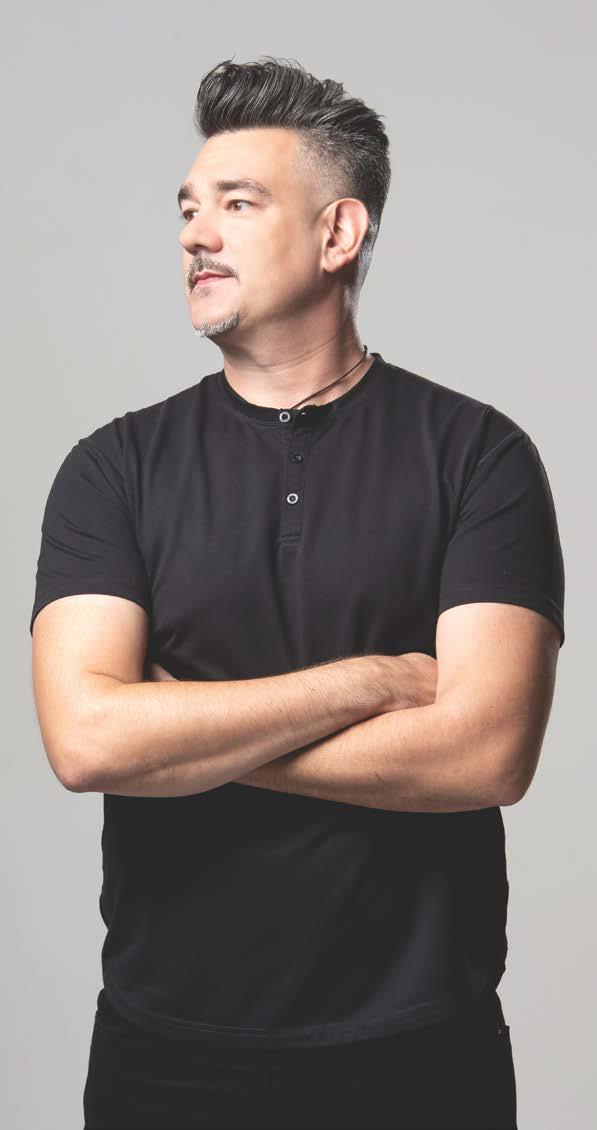

Can you tell us more about Chedi Hospitality, including what you see as the key brands under it?
Chedi Hospitality is more than a collection of properties — we are legacy builders, shaping a portfolio of distinctive brands defined by cultural authenticity, refined aesthetics, and heartfelt service. At the heart of our collection is the award-winning Chedi Hotels — including The Chedi Muscat, recently voted the No. 1 Hotel in the Middle East by Condé Nast Traveller readers, and The Chedi Andermatt, named Luxury Design & Lifestyle Resort of the Year 2025.
One of the most powerful expressions of our philosophy is The Chedi Private Residences — private sanctuaries where timeless design meets curated living. These residences extend the Chedi lifestyle into everyday life, offering elegant, tranquil spaces supported by thoughtful, discreet service.
We’ve also introduced Serai, a vibrant brand currently under development. Built for the modern explorer, Serai is grounded in cultural immersion and active pursuits.
This strategic diversification aligns with our ethos, A Voyage Unbound — reflecting our commitment to transcending
Stephan Schupbach’s role as CEO of Chedi Hospitality has seen him lead many spectacular projects. This project is sure to be another landmark achievement.
traditional boundaries and creating experiences that go far beyond the expected. As legacy builders, we take the long view. Every decision, from architecture and placemaking to service rituals and storytelling is driven by purpose. For us, luxury isn’t defined by excess, it’s defined by meaning. Our mission is to create spaces and experiences that leave a lasting emotional imprint for our guests, our teams, and the communities we’re privileged to be part of.
The Chedi Private Residences looks truly spectacular. What are the key features you feel contribute to this?
The Chedi Private Residences are designed as a seamless extension of our brand’s soul, a place where timeless elegance meets curated living. Every element, from architecture to atmosphere, is intentionally crafted. The residences feature a floor-to-ceiling views, a refined interiors that balance modern sensibility with natural warmth and an exceptionally expansive layout. Yet what truly elevates them is the seamless integration of intuitive, discreet service and a serene atmosphere.
Tell us more about bringing the brand ethos to this project – what are the key “Chedi” lifestyle features that can be found?
Bringing The Chedi ethos to life means honoring our philosophy of understated luxury and emotional resonance.
At The Chedi Private Residences, this is expressed in many ways: the seamless indoor-outdoor living, the sense of stillness woven into the design, and the access to signature amenities such as spa and wellness offerings, private dining, bespoke concierge services and 24/7 intuitive service where limitations are met by a thoughtful ‘can do’ attitude. Every touchpoint is designed to offer balance, beauty, and an atmosphere of quiet sophistication — all hallmarks of the Chedi lifestyle.
Can you tell us more about the project, in terms of what you see as some of its main attractions?
This project offers a rare intersection of tranquillity and accessibility. Located in one of Dubai’s most desirable

residential communities, it provides the privacy and serenity one expects of The Chedi, while being moments away from the city’s energy and culture. The architecture is boldly modern yet warmly inviting, with clean lines, open spaces, and refined detailing. The integration of world-class wellness, culinary offerings, and curated lifestyle experiences further elevates the everyday into something truly exceptional.
What made you partner with Al Seeb for this project?
We are highly selective about the partners we choose not only in terms of capability but in alignment of values. Al Seeb brings a rare combination of deep local knowledge, forwardthinking development standards, and a genuine respect for creating something that endures. Equally important is the human dimension: we seek partners who resonate with the Chedi culture grounded in mutual respect, personal engagement and shared sense of purpose. That alignment allows us to operate as one team, united by trust, and committed to building something that reflects our collective vision.
What are the current timelines, in terms of current progress and completion dates/phases?
The project is currently in the development phase, progressing steadily and in line with our established milestones. We are now in the final stages of design detailing. It’s a process being undertaken with the utmost care to ensure every element reflects the distinctive Chedi standard of excellence. Groundbreaking is scheduled for later this year, with project completion and handover anticipated by 2029. We are also pleased to share that 50% of the inventory has already been sold at the initial offering, reflecting a strong market interest.
Dubai is a very thriving real estate market, but that also means it is extremely competitive. How do you stand out from the crowd? What in your view makes this project both unique and special?
What sets this project apart is the soul behind the structure.
In a market filled with spectacle, we offer substance. The Chedi Private Residences are not about trend, they’re about timelessness. Designed for the discerning individuals who value discretion and beauty, the residences pair elegant architecture with thoughtful service in highly personalised, residential context.
The living spaces not only exceed industry norms in scale, but also offer a rare sense of freedom, comfort and tranquility. This rare combination of scale, design integrity and the trusted Chedi brand of hospitality results in compelling value proposition with long -term investment appeal.
Do you see the current boom in Dubai property continuing or do you feel the market has peaked?
Dubai’s evolution continues to be a story of resilience, innovation, and reinvention — a journey shaped by the visionary leadership of His Highness Sheikh Mohammed bin Rashid Al Maktoum. Having lived and worked in Dubai for over 30 years, I’ve witnessed firsthand how His Highness’s foresight and ambition have transformed the city into a global benchmark for excellence. It is through his leadership that we are continually inspired and privileged to contribute to this remarkable growth.
While no market moves in a straight line, I firmly believe Dubai’s trajectory remains strong. This is not just a boom, it’s a maturing market, sustained by investor confidence, long-term stability, and an exceptional quality of life. Today’s discerning buyers are looking beyond short-term returns toward meaningful, lasting value. Projects like The Chedi Private Residences are a response to that shift grounded in authenticity and belief in the vision that continues to define Dubai’s future.
What is your long-term vision for the company – where do you see it in ten years?
Our vision is to continue building legacies. In ten years, I see Chedi Hospitality not only celebrated for its exceptional hotels and residences but also recognized as a pioneer in reimagining what luxury truly means. We aim to create
aspirational, bucket list-worthy experiences that inspire and resonate deeply, defining a new frontier in luxury living. As we expand into destinations that reflect our ethos, we will nurture offerings that transcend hospitality — shaping meaningful journeys through lifestyle, culture, and a profound sense of belonging. At the heart of it all will remain our commitment to A Voyage Unbound — journeys not measured in miles, but in meaning.
There is no shortage of great offerings in this project. What is your personal favourite?
It’s difficult to choose just one, but what resonates most with me is the integration of wellness throughout the project. The way we’ve designed the flow of the residences — from private sanctuaries to communal wellness spaces — encourages a daily rhythm of balance and care. It’s not about occasional indulgence, but a holistic way of living well. That, to me, is the true luxury.
You have had a long and distinguished career in this field. Looking back, what have been the highlights and also the biggest challenges?
The highlights have always been the people. The teams I’ve had the privilege to lead, the visionaries I’ve learned from, and the guests whose lives we’ve quietly touched. Turning vision into places that hold memory and meaning has been the most fulfilling part of the journey.
Equally important has been the grounding presence of a stable family. Their unwavering support has brought balance amidst the demands of a fast-moving industry and reminded me of what truly matters.
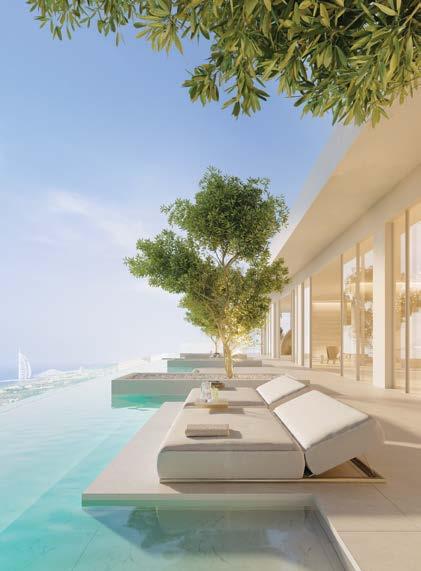
The challenges have often come during times of great change but those are also the moments that shaped my resilience and reaffirmed my belief in leading with clarity and care. This industry tests you, but it also gives you the extraordinary gift of building something that lasts, both professionally and personally.
What advice would you give to those who want to follow in your footsteps?
Lead with purpose, not ego. In this industry, as in life, humility goes a long way. The most respected leaders I’ve worked with weren’t the loudest in the room; they were the most grounded, the most attentive. Listen more than you speak. Seek to understand before being understood. True leadership is about service to your team, your guests, and the values you represent.
Always stay curious. This is an ever-evolving industry, and the ability to adapt with grace is what keeps you relevant. Don’t be afraid to innovate or question what’s always been done, but let innovation be guided by intention, not trend. What we create should not only be new, it should be meaningful.
And finally, remember that true luxury is never loud, it’s quiet, intentional, and deeply human. If you want to build something lasting, focus on substance over spotlight. That’s where the real legacy lies.
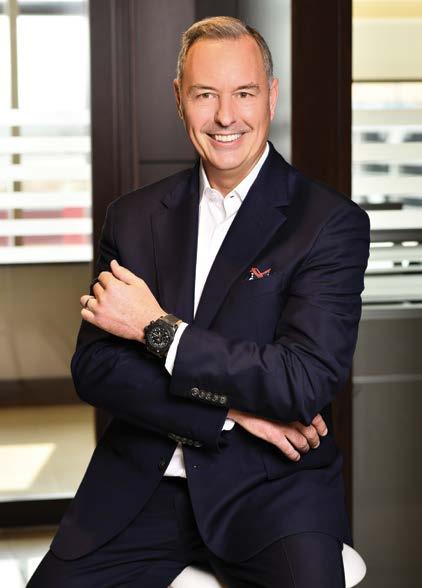
Mark Burns, Chief Design & Construction Officer for Chedi Hospitality, has been heavily involved in the creation of many of the project’s USPs.
You have worked on some of the world’s most iconic projects – which ones truly stand out?
Each project has brought it’s own level of uniqueness to a long career, whether the first project in the 1980’s in London to the most recent in Dubai, each has delivered their own standout moments and memories.
The projects that stick in the memory the most are not the ones that are necessarily aesthetically based but are the ones that have created emotions and memories that stand the test of time. I have also had the privilege to work with some of the hotel design industry’s most iconic personalities from architecture to interior design through to the numerous specialists that offer an important role in the successful activation of any project.
There have been a number of standout locations across the globe that stick in the memory as first experiences including Chile, France, Grenada, Seychelles, Morocco, India and Japan. This is not to in anyway dilute the amazing experiences in numerous other countries but these stick to mind. With many projects lasting many years, i feel that the most rewarding project thus far is the ongoing career.
From a design perspective, what is it that makes a project “iconic”?
We believe it is important for the design to connect to the project’s conceptual narratives whilst ensuring The Chedi experience. And making sure that the design moments consider emotion as important as aesthetic to elevate the journey.
Our design principles demonstrate the importance of a restrained, culturally connected approach that delivers a unique experience whilst connecting with a series of recognized brand design pillars. This uninvasive and considered philosophy has seen our properties remain at the forefront of luxury hospitality for many years even with many newer properties coming to market. Our properties see a high percentage of returning guests identifying with the Chedi design approach being preferred over many newer design directions, this feedback allows us to further enhance on the current experiences further improving the longevity of the design.

Tell us more about the many Chedi projects you previously worked on - which ones are you most proud of?
All of our projects bring their own rewards through a well considered collaborative approach with our owner’s and design partner’s. The understanding of project development challenges in an ever evolving market is key to our continued demonstration of sustained performance and longevity.
Each project, demonstrates in it’s own unique way, the importance of understanding in the Chedi Culture and how to best intertwine this in each of our unique locations that in turn have allowed each of our properties to be uniquely identifiable whilst connecting with the Chedi experience.
Turning to this latest project, what are the stand out features?
I think the initial impact of the facade in relation to the adjacent buildings as well as many other buildings in the city identify a uniqueness and create a note of curiocity whilst maintaining a level of restraint.
Careful consideration has been given to the sence of arrival for both guests and visitors, balancing the seamless process whilst maintaining the level of intimate privacy required.
Working with renowned brand partners the amenities levels offer a number of exciting experiences for all ages with defined wellbeing activites forming a core pillar in many of the facilities.
This is also balanced with an exciting new concept on the rooftop of the building that will be exclusive to residents and their guests.
By maximising the sea facing windows the residents shall retain a connectivity to the surrounding location whilst maintaining a “sanctuary in the sky” which is an important consideration for our first launch in Dubai.
Transitional spaces have been designed to consider an effortless flow for the residents and their guests throughout the development, deliberate positioning of amentiies through three floors allow for complete separation of any service requirements to the residencies or public spaces.
The service and maintenance requirements have been well considered throughout the building. Carefully curated processes have allowed for deliberate and discreet acccess points that mitigates any impact to our residents and guests throughout the building.
The building considers state of the art technology that not only seamlessy integrates with an enhanced level of luxury living but also allows for our residents to have a closer control of energy management within their properties offering a transparency into the building performance as well as their own sky villas.
The sustainability programming for this development will follow the Chedi brand guidelines that form a key driver to minimising our short and long term environmental impact.
The design is such that there are significant spaces even in the so-called “smallest” units – what is the reasoning for this? Is this one of the many USPs?
Spacial considerations in all areas of the project have been developed to best reflect the Chedi brand and expectations of the Chedi guest.
We believe that ultra luxury vertical living should offer a similar experience to a more traditional villa style and as such the residenses in particular have been sized to reflect a Chedi perspective on luxury living with an understanding of the requirements in each resident having a unique personal approach to experience curation.
The public spaces have also been specifically designed to offer

each resident the opportunity to both connect with other residents within community activated areas or more private experiences.
This approach replicates how guest experiences are curated within our hotels and offers a clear connection to our portfolio.
The luxurious, seamless finishes and well appointed facilities offer the perfect canvas for each resident to either choose from a selection of Chedi pre-defined styles or their own preferred direction.
You have 35 years of experience in this field – how has the industry changed over this time?
I think the biggest change that effects our design process is the level of importance now given to Sustainability and Environmental Impact in our decision making. Whilst a sustainability programme was always a part of the development guidelines this subject now drives a majority of key decisions. With our design partners we have seen that with a collaborative embrace of sustainability programming and undiluted luxury experiences can be achieved with little recognized impact.
Having worked on so many exciting projects, how do you manage to find inspiration each time? What keeps you motivated?
Our industry is contagious, passion feeds passion and having the fortune to work across the globe on unique developments with creative masters offering continual learning opportunities that richly enhances both cultural understanding and design trends that allow us to ensure each property remains unique.
Time for me is an ultimate luxury, and to be able to use a vast majority of it on such a passion allows me to consider our supporting role to be a privilege. With this mindset we seem to be able to find extra time in the day to achieve our goals.
From a design point, how much as AI changed the process?
Whilst AI is still comparitively new within the creative curration we can already identify the efficiencies it brings to the design processes and procedures which in turn offers a greater opportunity for a more collaborative approach with our residents during the design process and in turn create a clearer connection for the owners to their properties.
We are excited to see how the innovations that will be a result of the AI data processing will further benefit the uniquenss of our projects in the future, and how we as a brand can embrace and collaborate with the opportunities presented.
We are mindful however that our brand has always identified a “people first” culture and a sustained personal involvement is critical for us moving forward.
Time for me is an ultimate luxury, and to be able to use a vast majority of it on such a passion allows me to consider our supporting role to be a privilege.” “
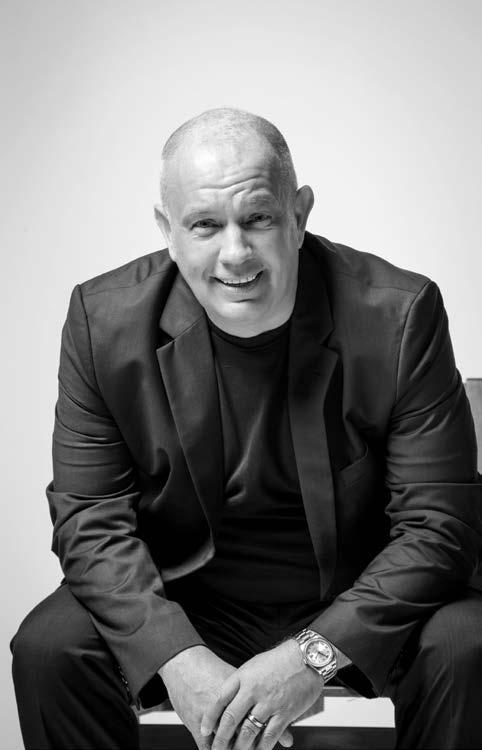
UAE government’s efforts aim to make climate action “affordable, accessible and at scale to the most vulnerable communities,” Dr. Al Dahak notes by AALIA
MEHREEN AHMED
During a fireside chat on day one of the Dubai Fintech Summit 2025 -the third edition of an annual event by DIFC that convenes regional and global fintech stakeholders, which was held from May 12-13 this year- H.E. Dr. Amna bint Abdullah Al Dahak, UAE Minister of Climate Change and Environment, noted that the UAE “has always
been a supporter for countries to achieve their climate action and climate agenda.”
Moderated by Lenah Hassaballah, editor and presenter at CNN Business Arabic, the conversation put a spotlight on the intersection of sustainability, policy, and economic growth.
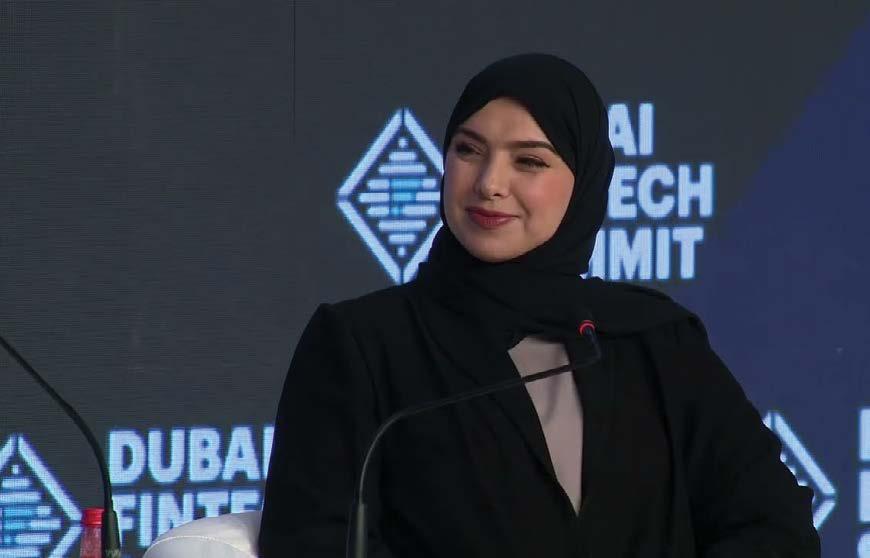
“IT WAS ESSENTIAL TO MAKE SURE THAT THIS FUND IS MOVING FORWARD BECAUSE, WELL, THE UAE… WE’RE ALWAYS ABOUT IMPACTFUL ACTION, AND WE HAVE SEEN THE NEED FOR THIS.”
Moderated by Lenah Hassaballah, editor and presenter at CNN Business Arabic, the conversation put a spotlight on the intersection of sustainability, policy, and economic growth.
The UAE’s Loss and Damage Fund -an initiative launched during 2023’s COP28 which is aimed at assisting developing countries most vulnerable to the adverse effects of climate change- was the opening point of discussion. “I would like to start by reminding everyone that the operationalization of the Loss and Damage Fund happened on the very first day of COP28, where we witnessed the pledge from the UAE of US$100 million to support this fund,” Dr. Al Dahak noted. “And from there, we have seen the ball rolling and the momentum being gained. Up until today -as of March 2025- we have US$766 million pledged into the Loss and Damage Fund from 25 countries.”
Dr. Al Dahak then emphasized that the UAE has been deeply committed to aiding the communities that have been the first to be affected by the ongoing climate crisis- a pivotal reason behind the formation of the Fund in the first place. “It was essential to make sure that this fund is moving forward because, well, the UAE…we’re always about impactful action, and we have seen the need for this,” Dr. Al Dahak added. “And the operationalization of this fund shows the global commitment toward achieving or supporting those countries and their climate agendas. Now, since then, we have seen the progress in this fund as per the third board meeting in September 2024, which took place in Baku…So we can see now that all the groundwork has been laid for this fund to operationalize and become into action. Now, we need to make sure through all international conversations and through multilateral platforms that are focused on climate action, that those countries who have committed and pledged to support this fund -which was announced in COP29 in Baku to be currently fully operationalized- continue to translate those pledges into actions to make sure that resources are available and accessible for those countries and the most vulnerable communities at the moment.”
These opening remarks from Dr. Al Dahak eventually steered the fireside chat towards the urgency surrounding, and opportunities presented by, aligning financial systems with climate goals. At the crux of this conversation was the ALTÉRRA Fund- said to be the world’s largest climate investment fund with a goal to mobilize US$250 billion globally by 2030 towards climate-related investments and initiative that supports the global transition to a low-carbon economy. Launched in the midst of 2023’s COP28 in the UAE, it aims to not only mobilize capital for climate initiatives, particularly in developing countries, but also seeks to bridge the climate finance gap.
But Dr. Al Dahak noted that even before addressing the aforementioned issues, the ALTÉRRA Fund sought to, first and foremost, “change the people’s perception about investment.”
“We want people to know that investment, the return on investment and the return on the environment with respect to climate action and climate agenda can go hand in hand,” she said. “Two words we have been hearing from Dr. Sultan Al Jaber [the COP28 President] is that we have to be practical and pragmatic. So we have to always ensure that we’re translating action in a way that is providing more innovative solutions but also making the investment where it matters. The ALTÉRRA Fund started, or rather was announced, in COP 28 with a commitment of $30 billion [from the UAE]. And it is designed, from the very beginning, to mobilize up to $250 billion by 2030 and with a completely different paradigm than what is understood to be, or what is looked at, as investment funds.”
Ultimately, these efforts by the UAE are to, quite simply, make climate action “affordable, accessible and at scale to the most vulnerable communities,” reiterated Dr. Al Dahak- a strategy that moderator Hassaballah noted as a “win-win situation.” “The most important thing is that it’s designed with the right return on investment model but at the same time the right return on environment as well,” Dr. Al Dahak declared.
As the conversation then moved into the realms of climate change challenges, the growing significance of clean energy models and the need to create more innovative models of climate financing. Dr. Al Dahak further stressed upon the UAE’s role in “green transition” and in helping businesses efficiently reach their net zero goals.
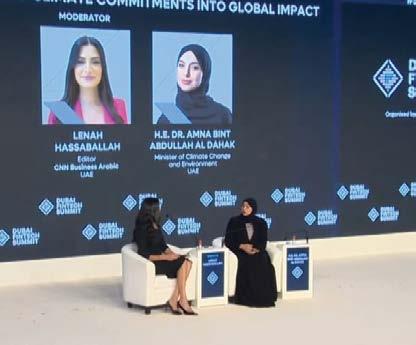
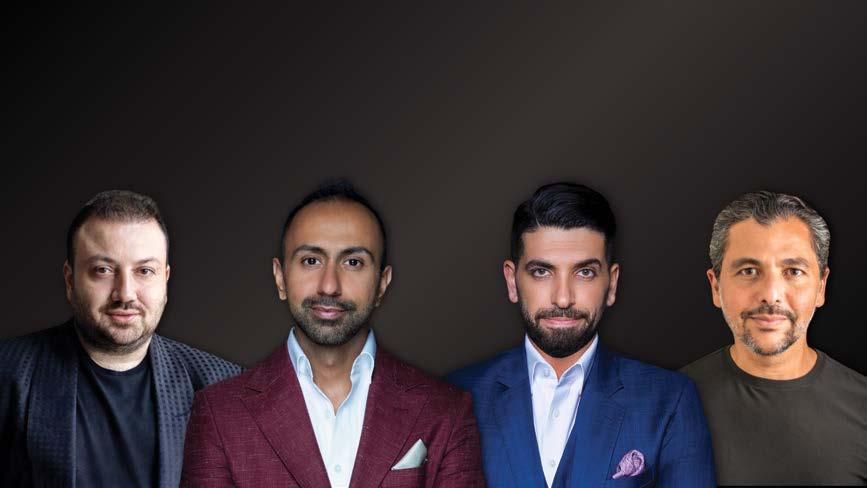
UAE-based and non-UAE based international entrepreneurs looking to pitch their business to the panel of investor-judges can apply by May 27, 2025, on TheFinalPitch.world.
Four of Dubai’s industry leaders have been named as investor-judges on the upcoming business reality TV show
The Final Pitch Dubai, the UAE edition of Asia’s longestrunning business reality TV show.
The lineup features Cypher Capital Founding Partner and Phoenix Group PLC co-founder Bijan Alizadeh, “The Wolf of Real Estate” CEO and Managing Partner of Harbor Real Estate Dr. Mohanad Alwadiya, Founding Partner of Incubayt Investments Ltd. Sami Khoreibi, and founder and Managing Partner of Triliv Holdings Jigar Sagar. The series introduces a proven format that empowers
ambitious founders through targeted mentorship by domain experts, an all-access personal tour of the investor-judges’ businesses, and funding and collaboration opportunities.
Tasked with evaluating high-potential pitches, the investorjudge panel will challenge founders to refine their ideas, while offering access to markets, strategic resources, and smart capital.
UAE-based and non-UAE based international entrepreneurs looking to pitch their business to the panel of investor-judges can apply by May 27, 2025, on TheFinalPitch.world.
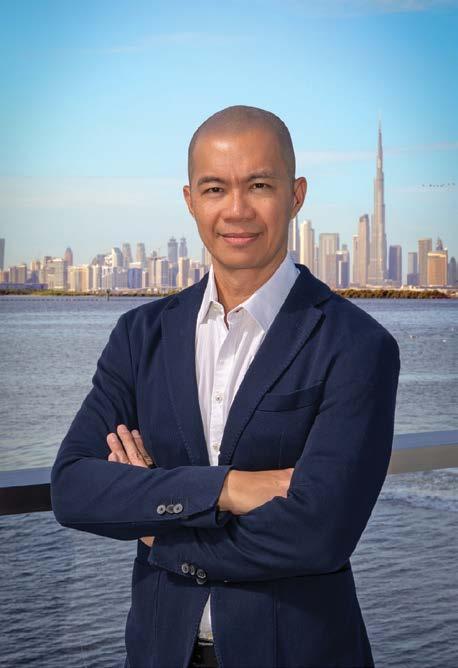
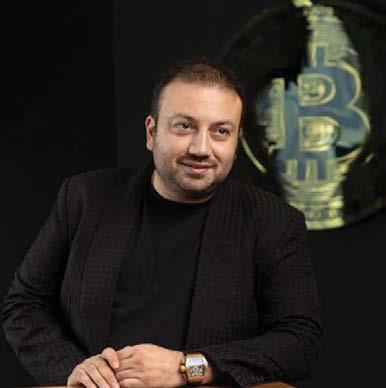
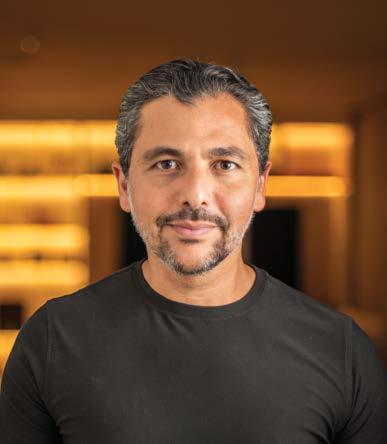
“Dubai is one of the most exciting places in the world to build and grow a business right now.” }}
The show is produced by production company Dragon’s Nest, and supported in the UAE by its local production partner Ti22 Films.
It will be filmed entirely in Dubai and is set to go into production in June 2025 across key locations in the city. It will exclusively air on OSN and OSN+ in Q4.
“Dubai is one of the most exciting places in the world to build and grow a business right now,” said John Aguilar, creator and host of The Final Pitch and Founder of Dragon’s Nest, LLC FZ, the business and media investment firm bringing the show to the region. “Our mission has always been to spotlight visionary founders
and connect them with real opportunities for investment and mentorship. With this first UAE edition in Dubai, we aim to contribute meaningfully to the country’s vision of fostering entrepreneurship, innovation and a knowledge-based economy – by helping build the next generation of business leaders.”
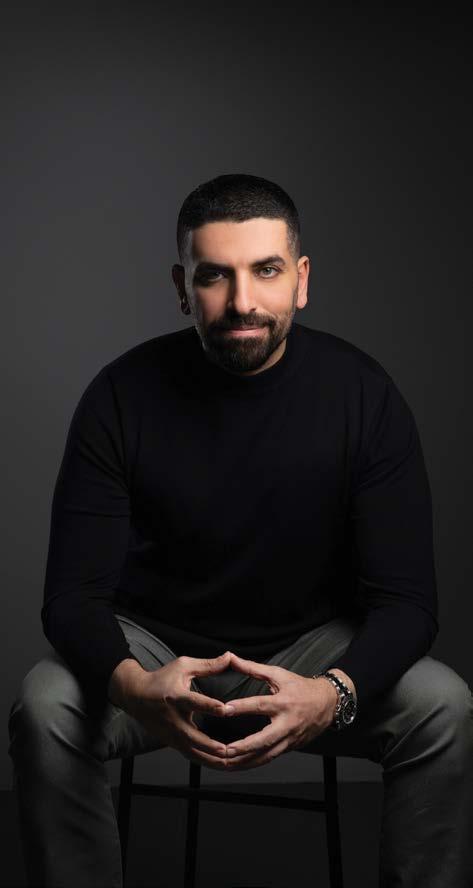
← Dr. Mohanad Alwadiya, "The Wolf of Real Estate" CEO and Managing Partner of Harbor Real Estate
Jigar Sagar, founder and Managing Partner of Triliv Holdings



